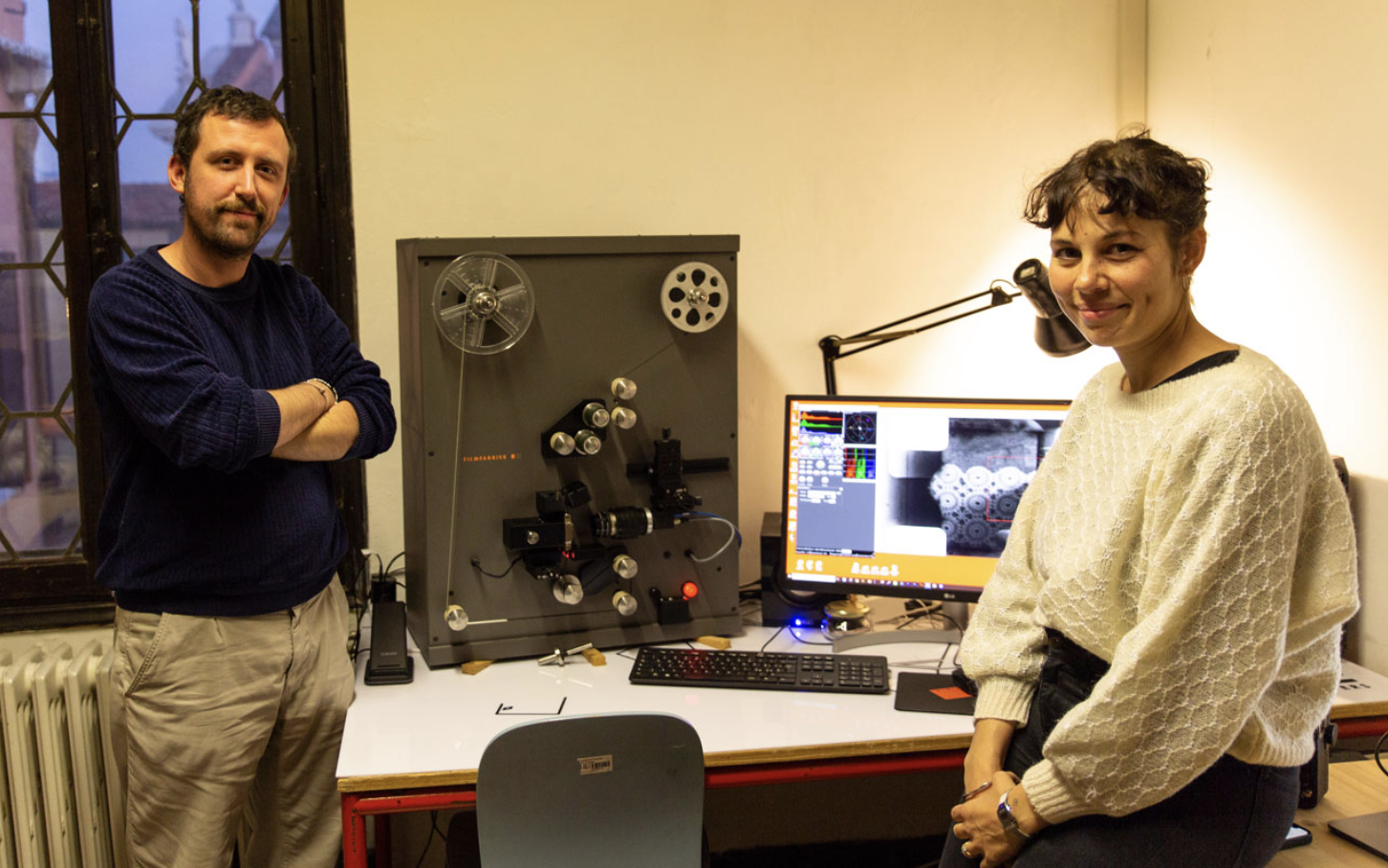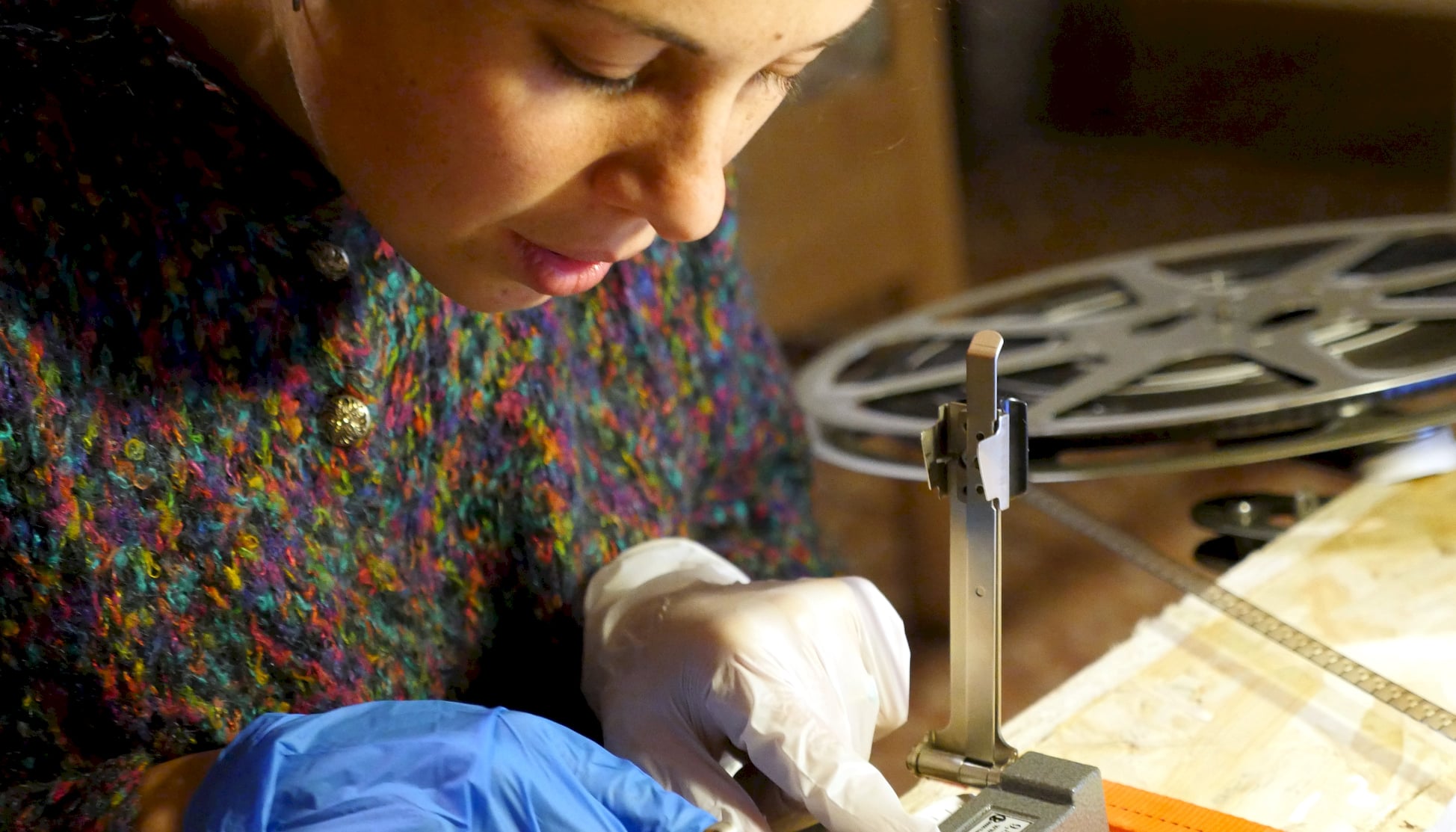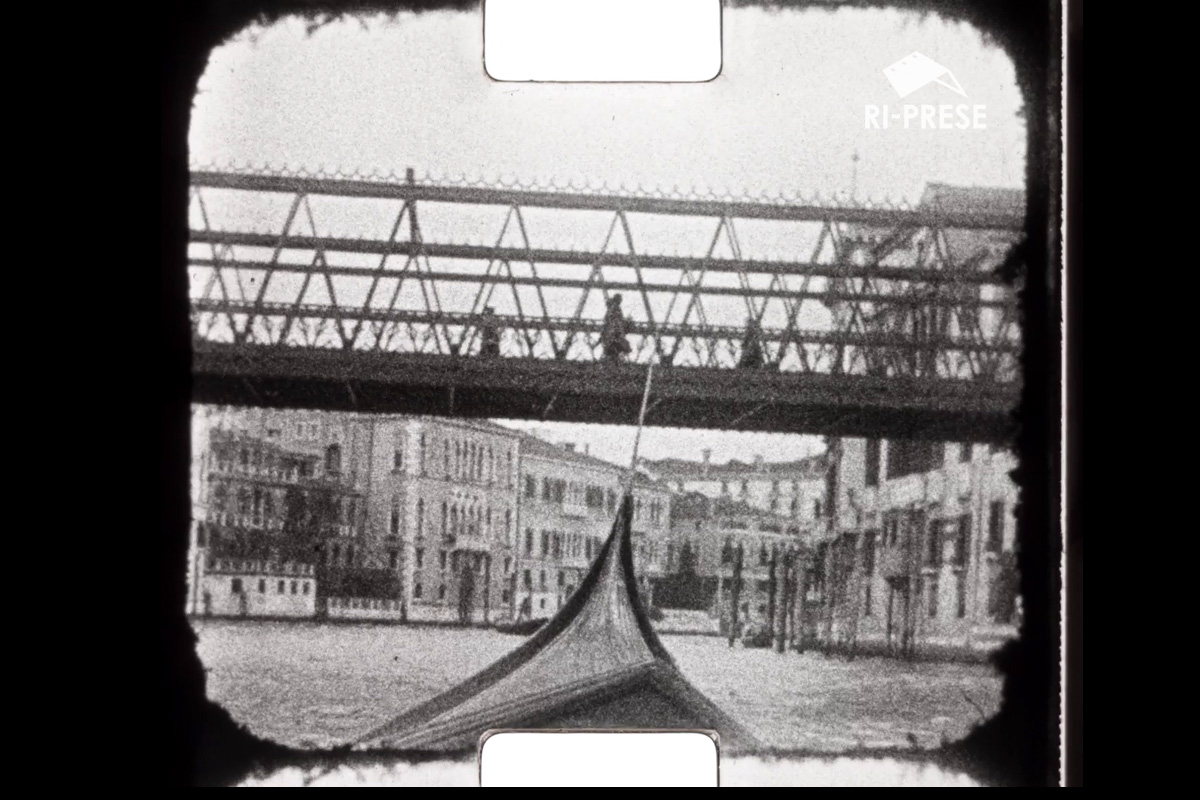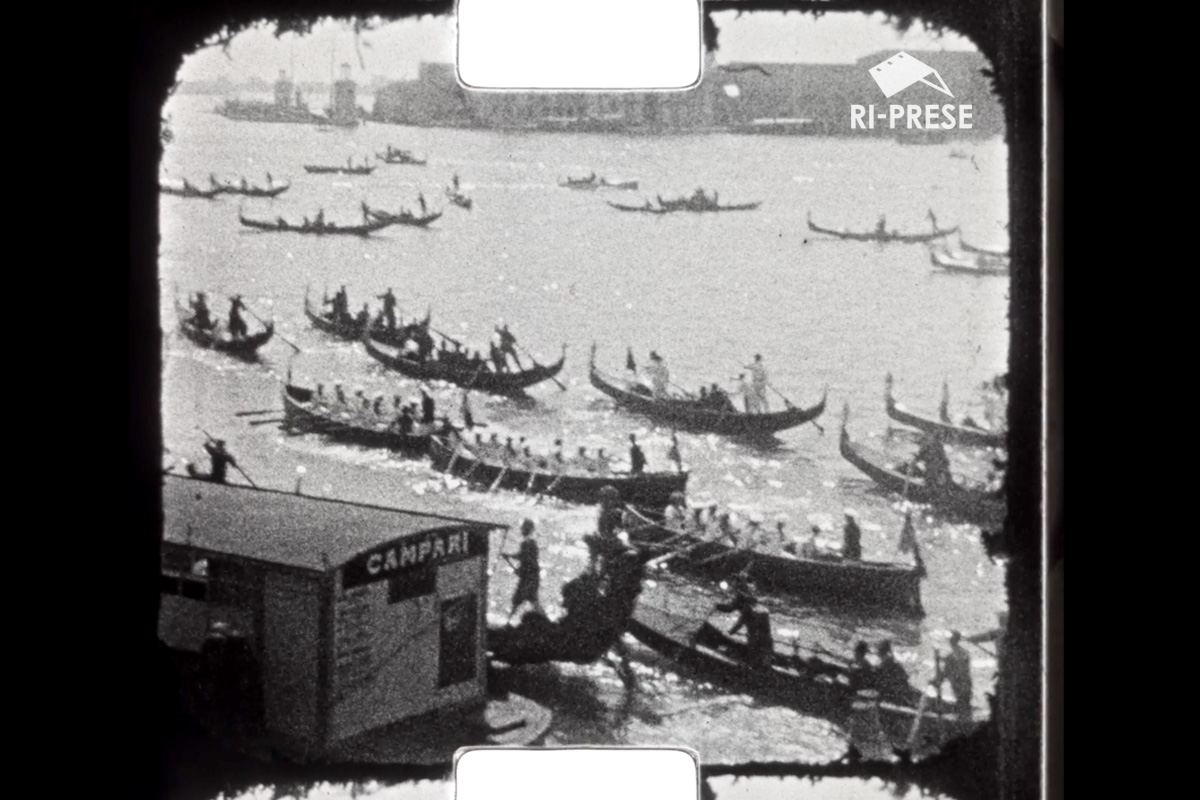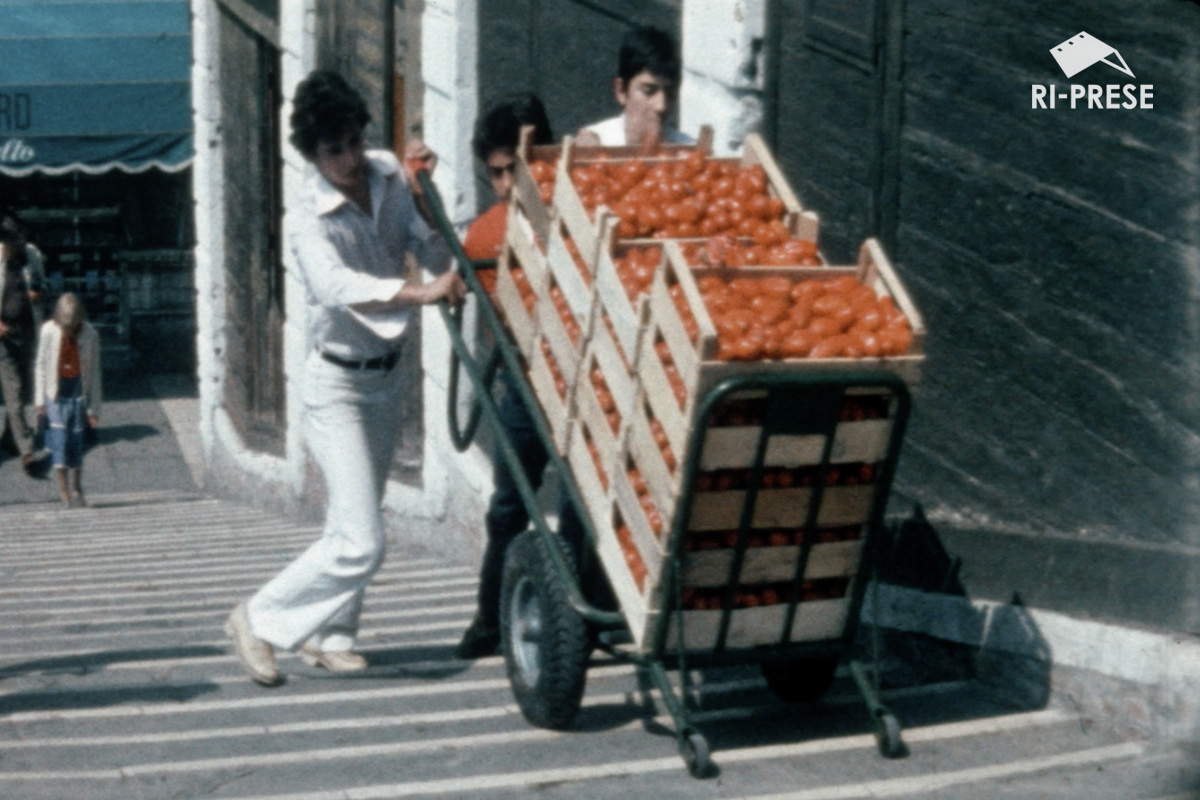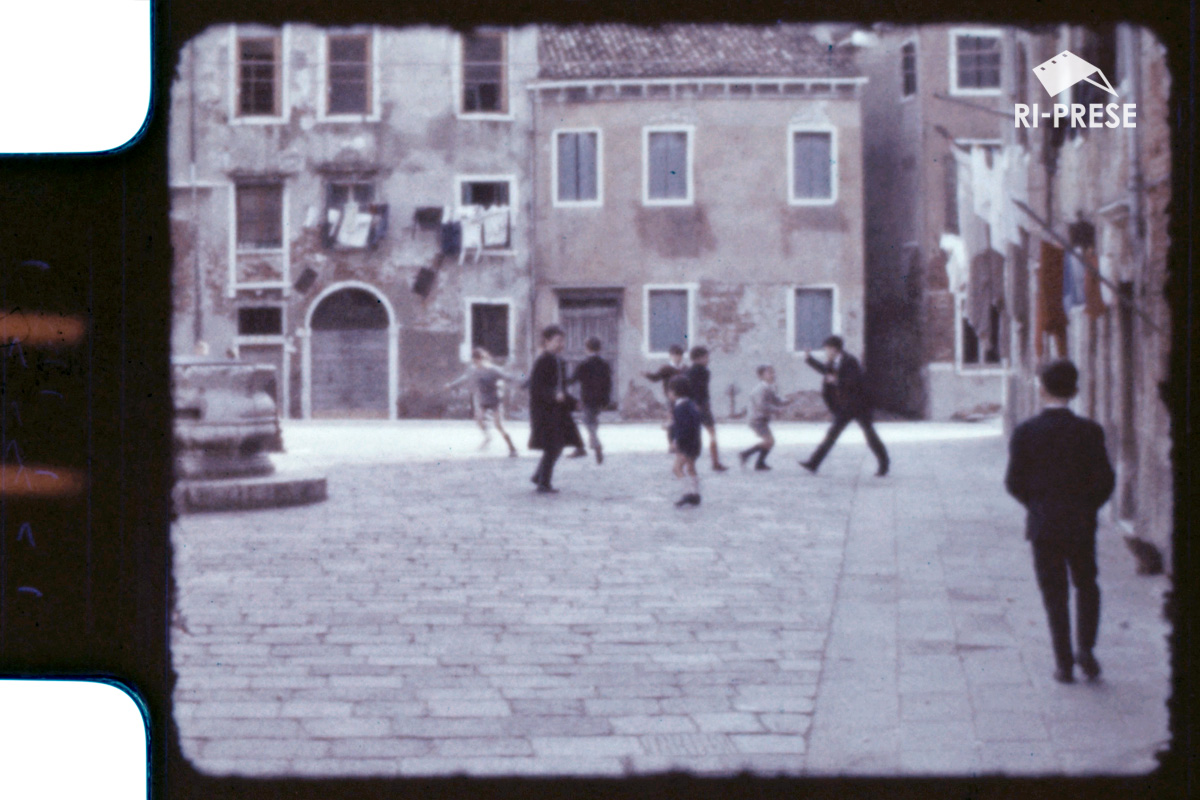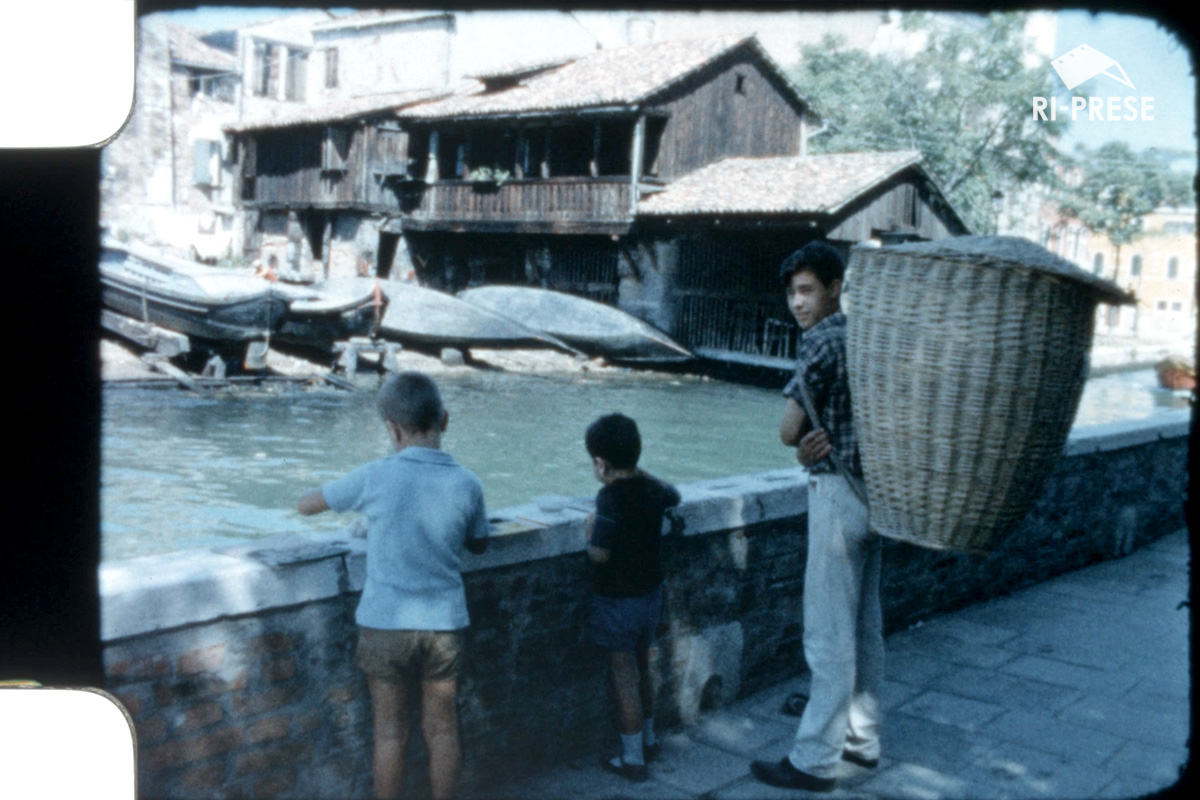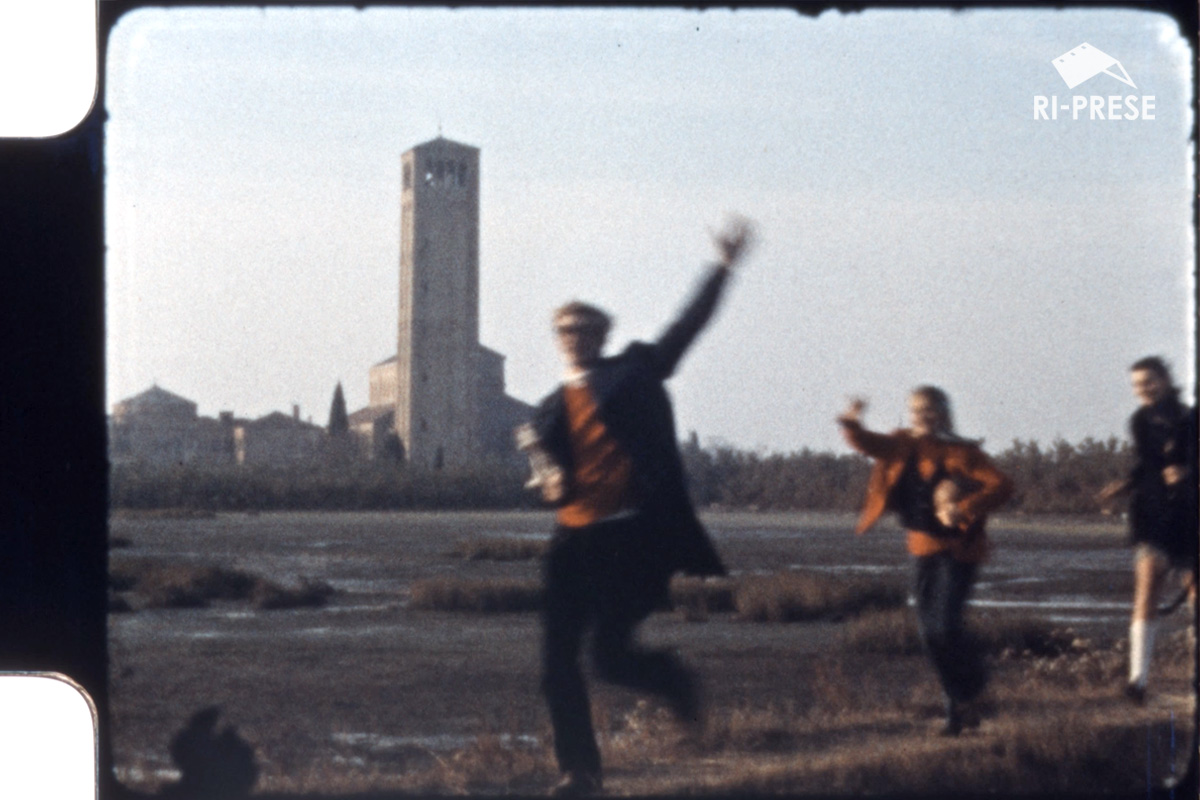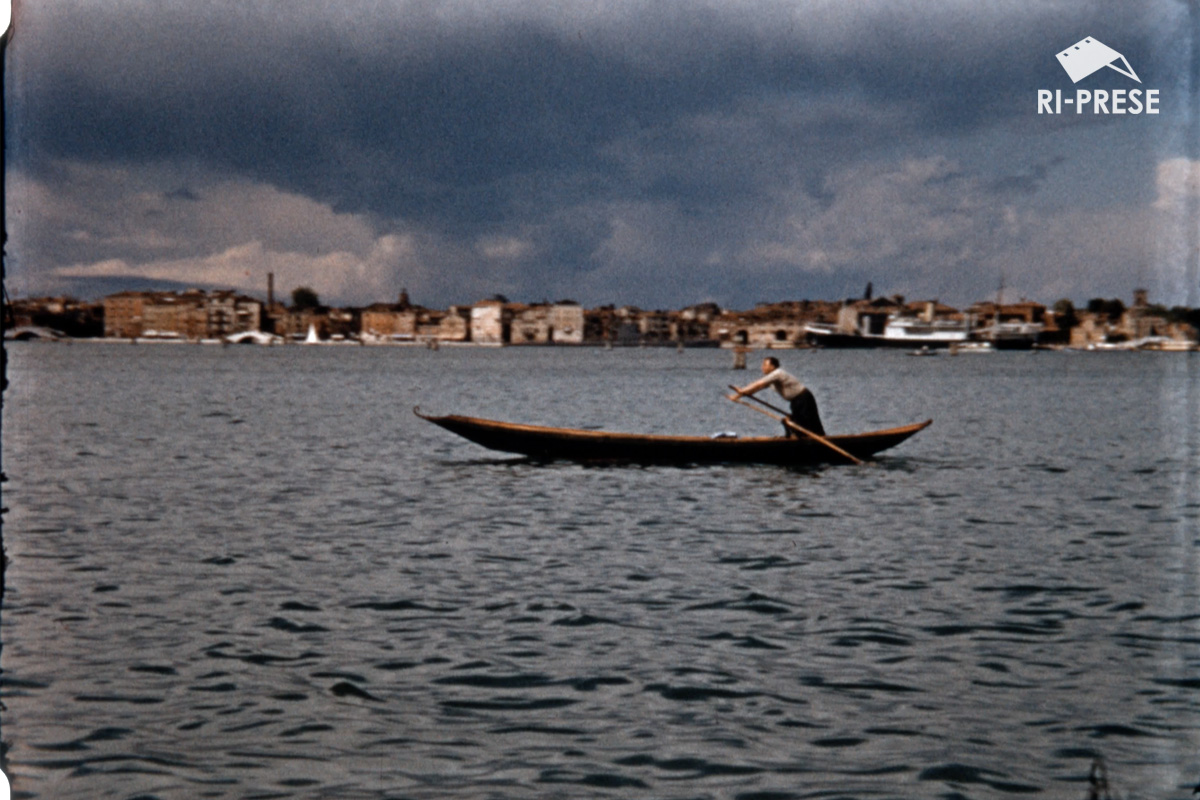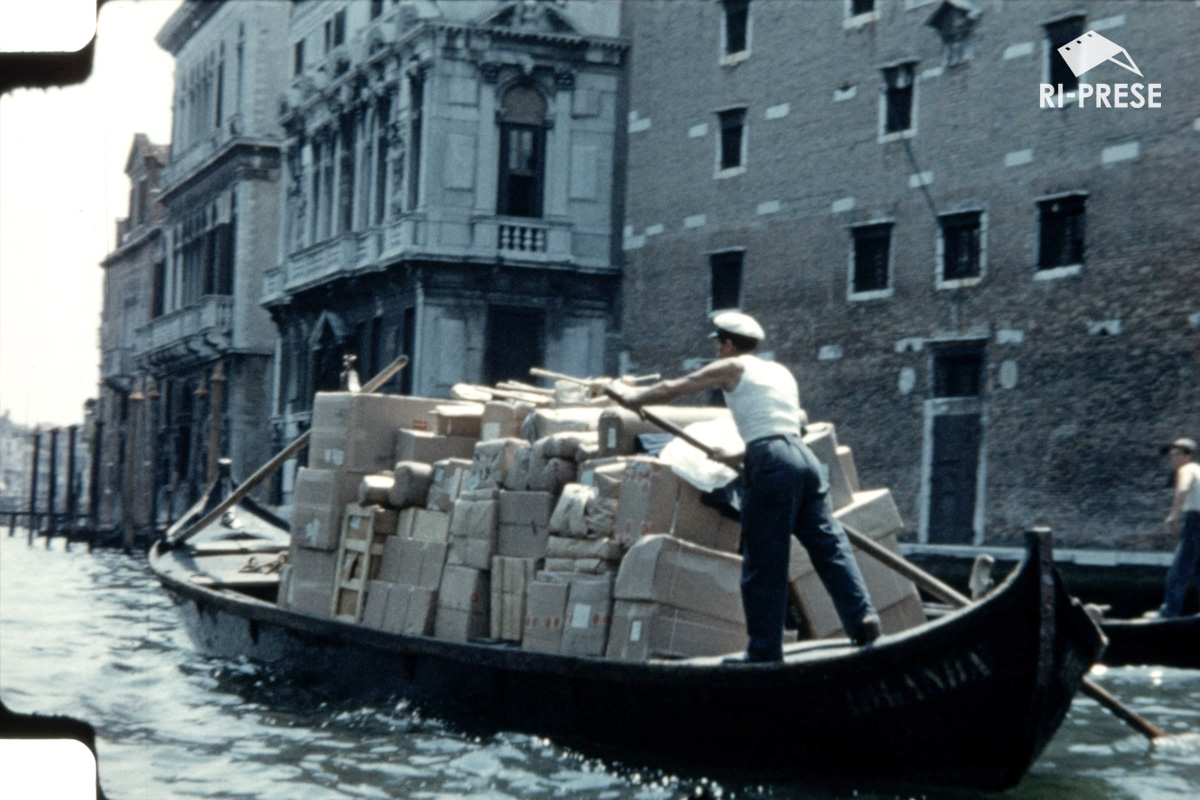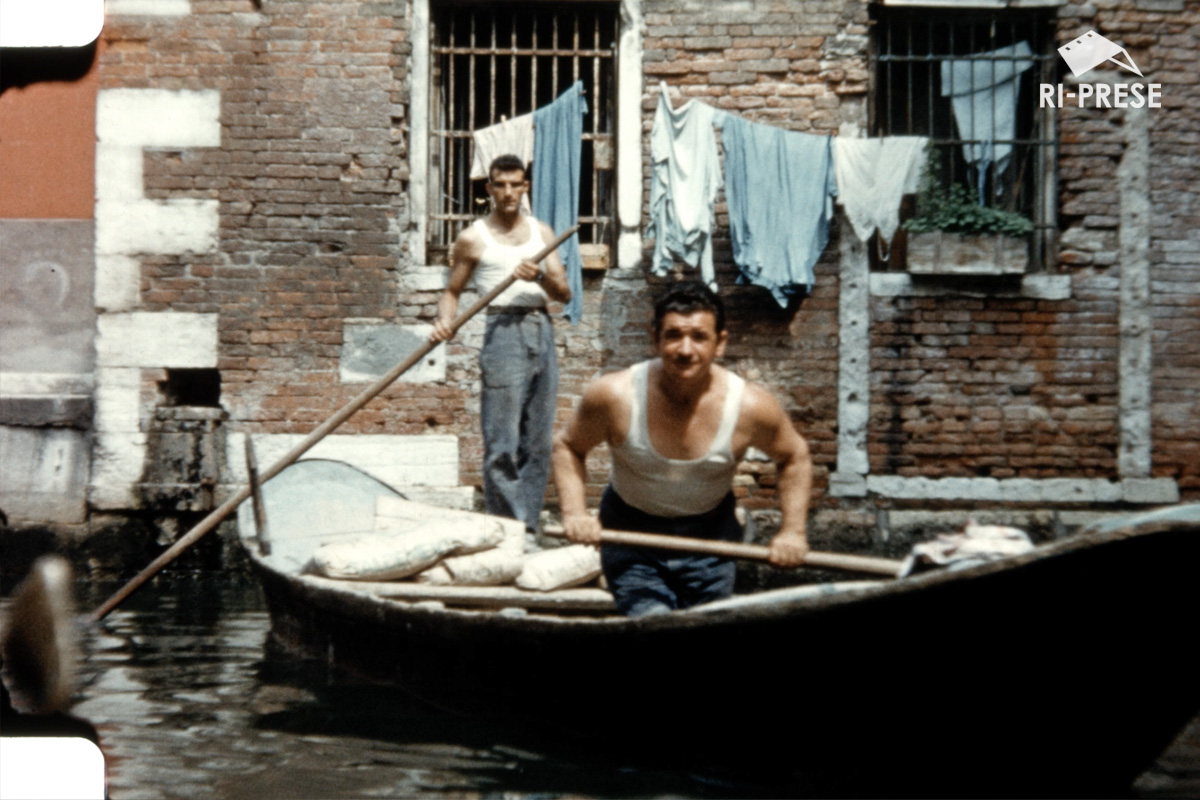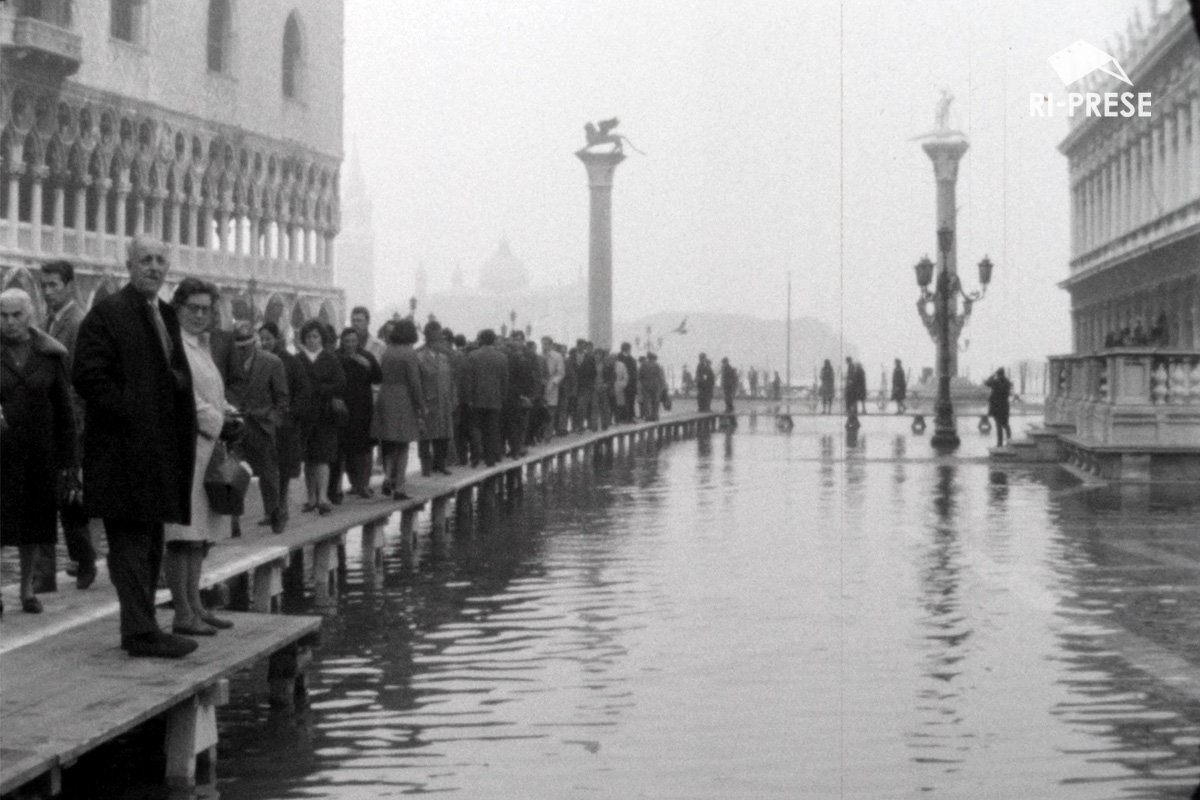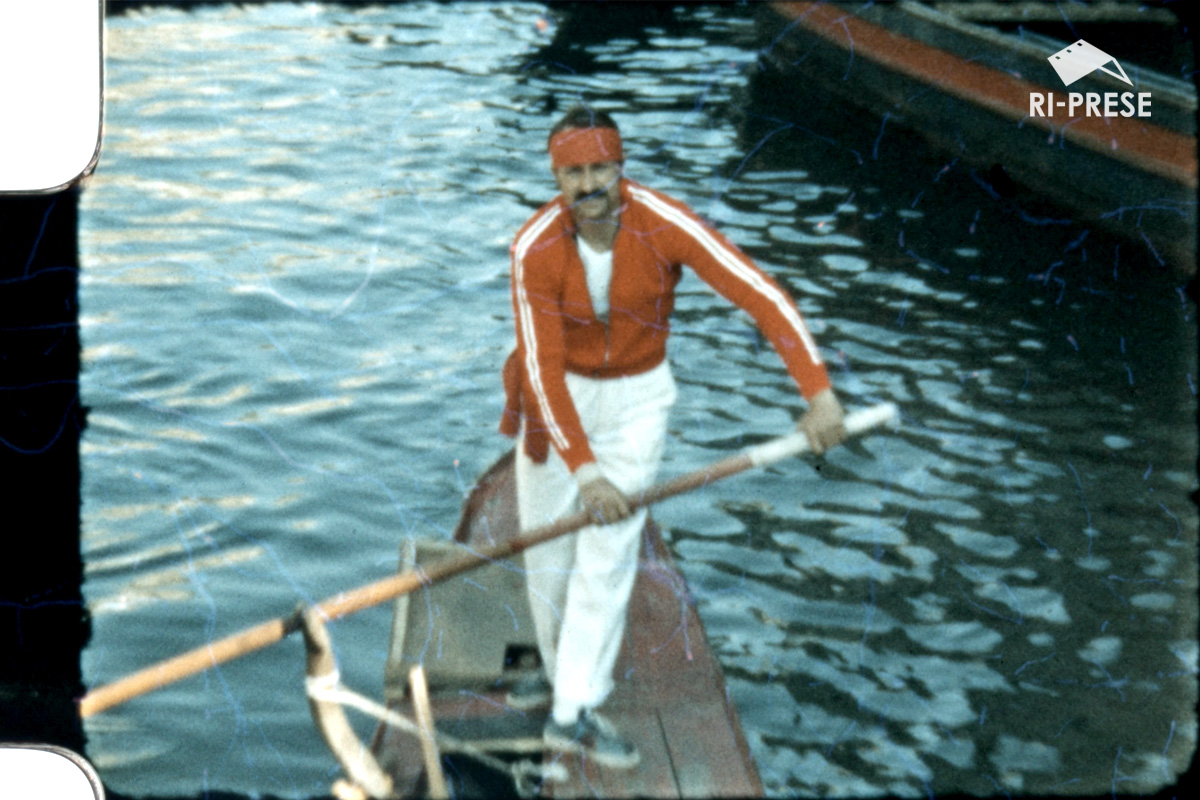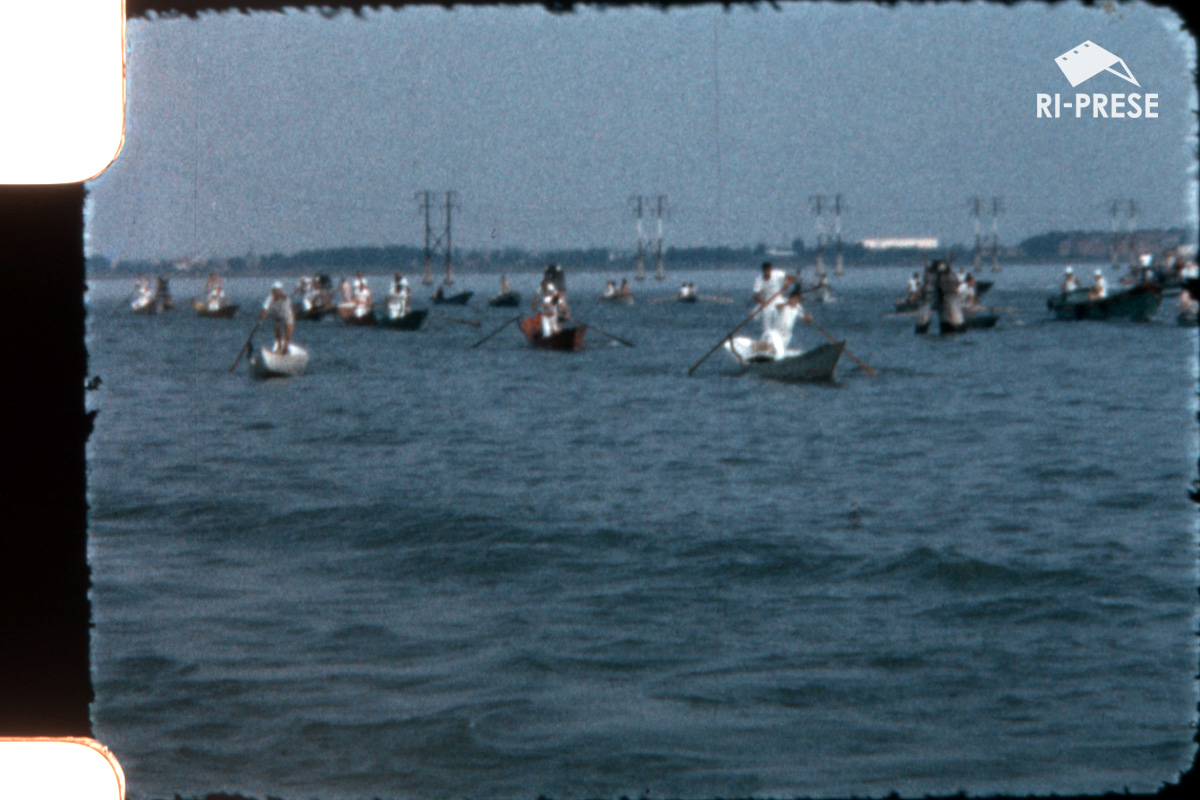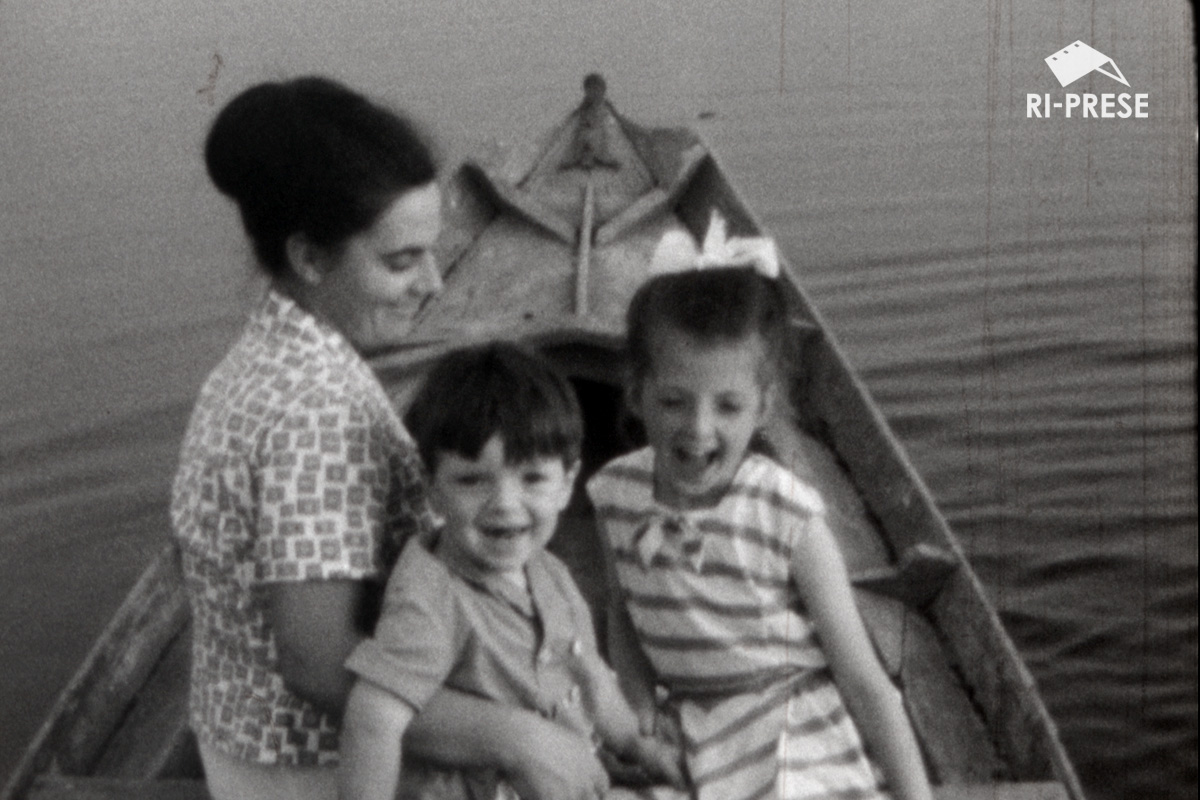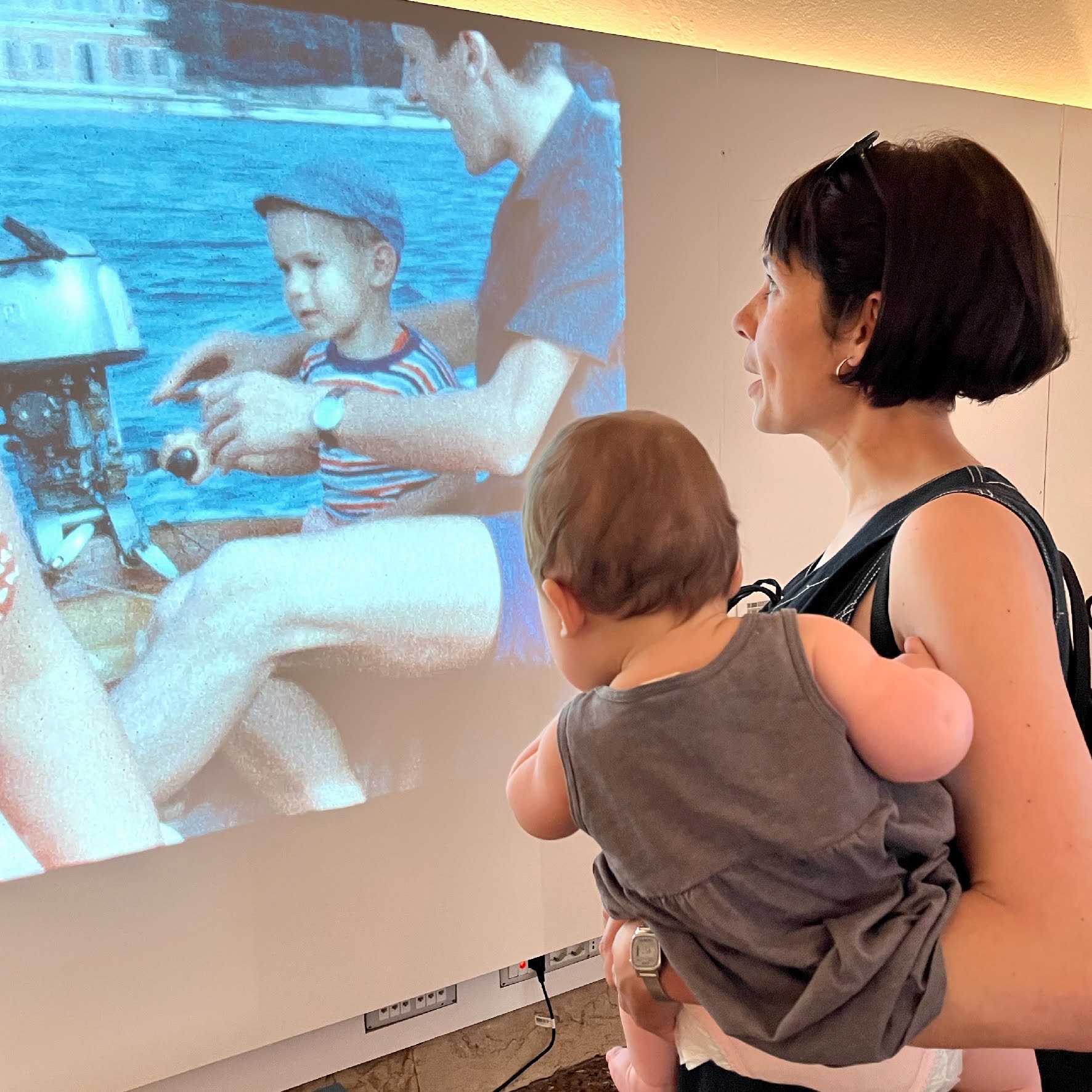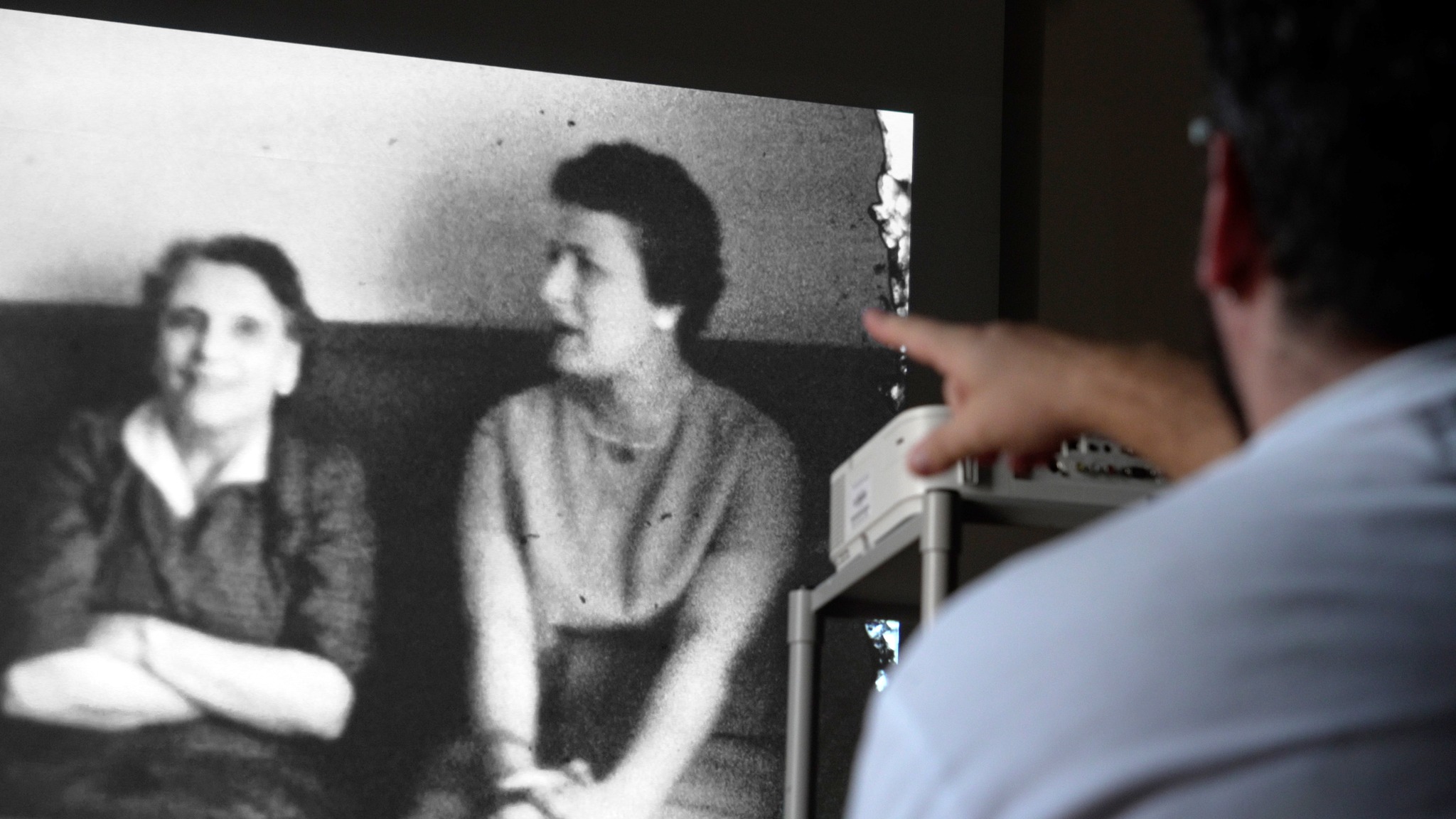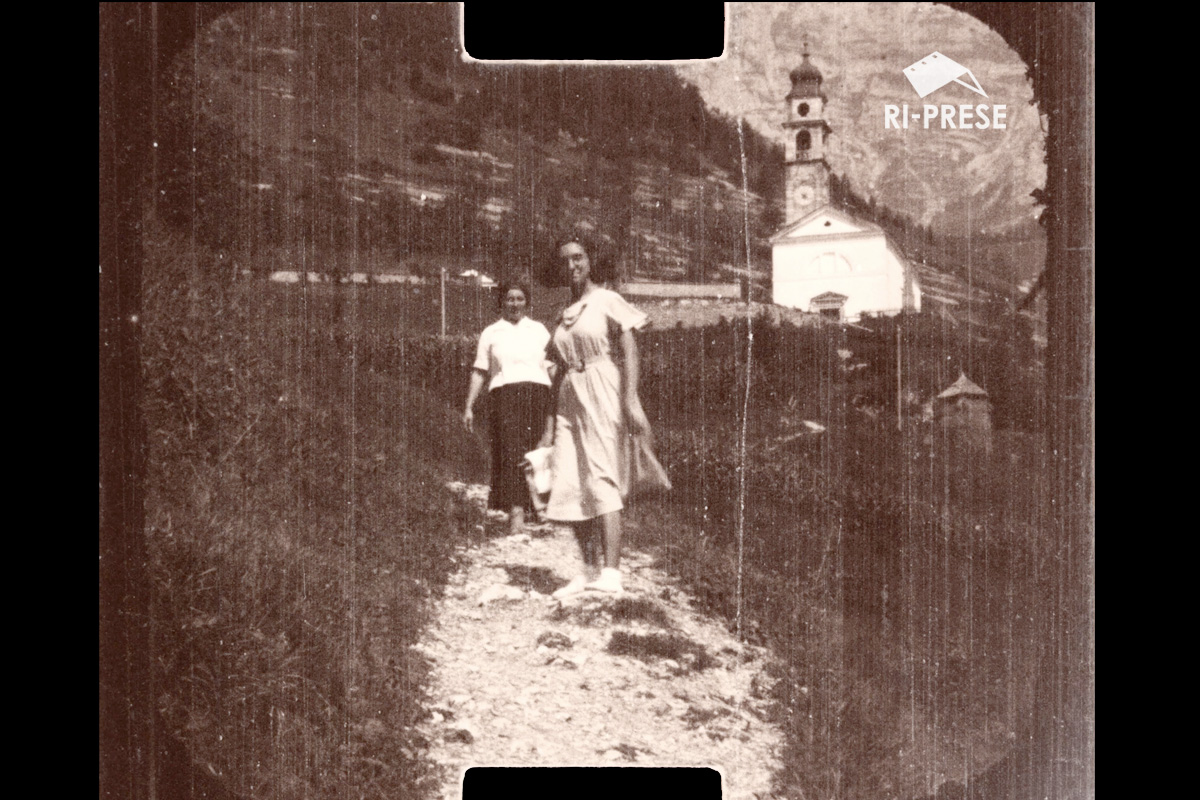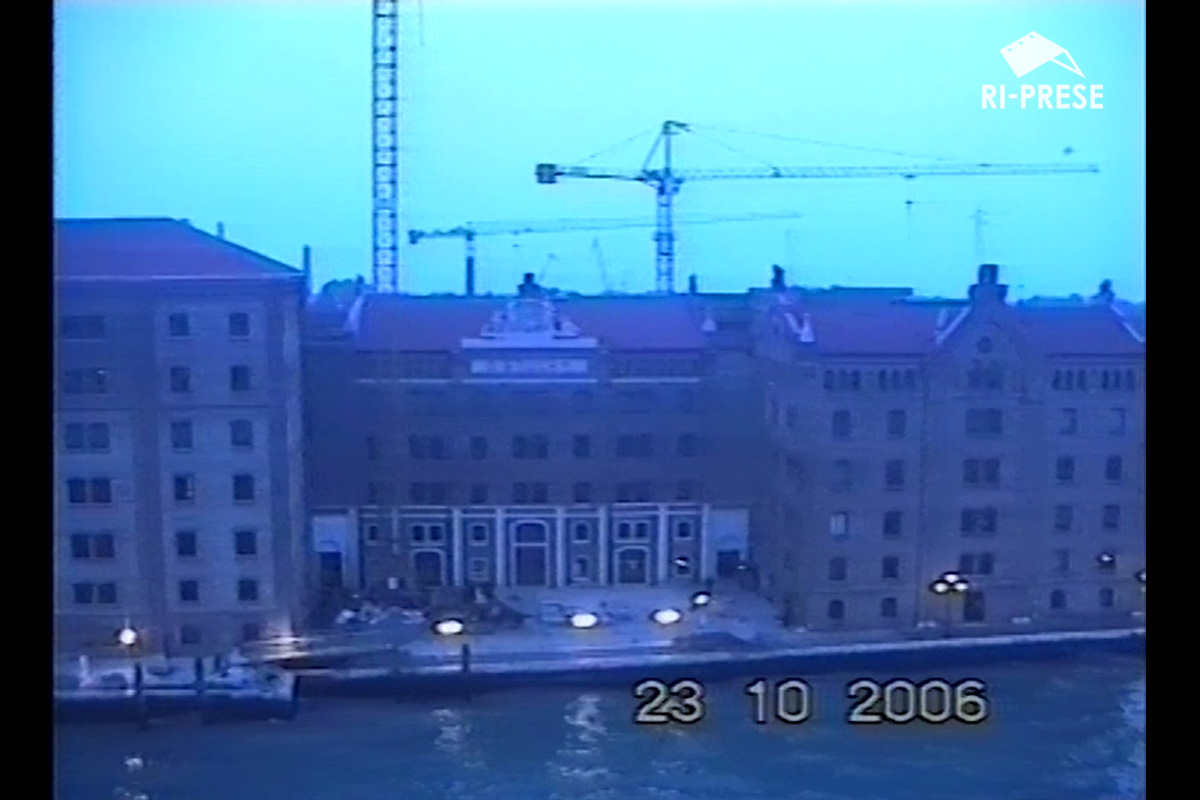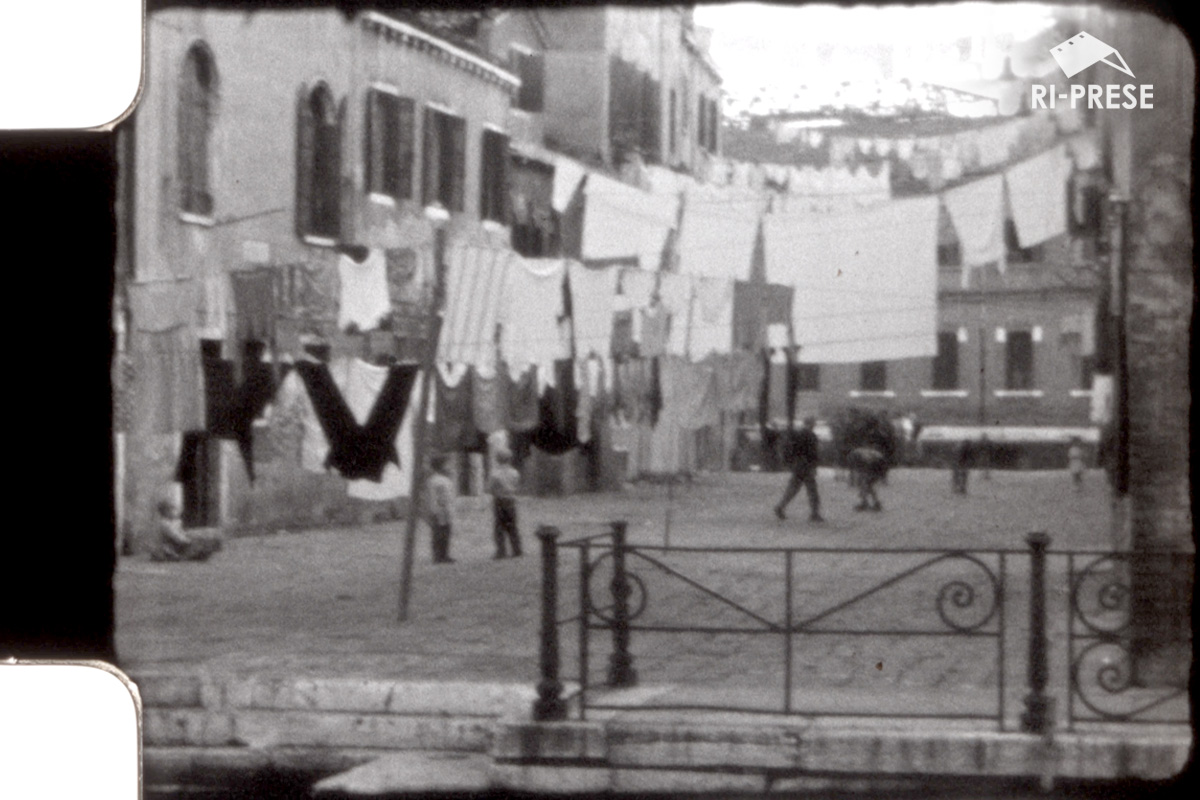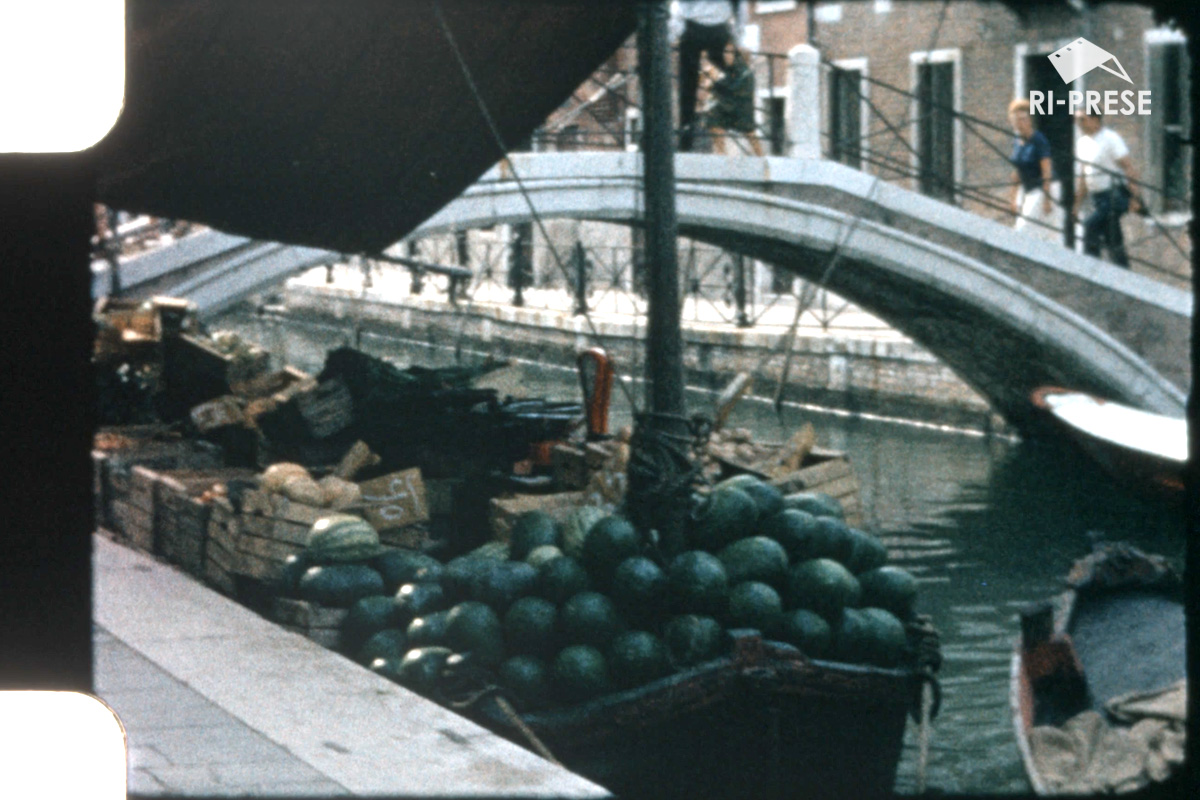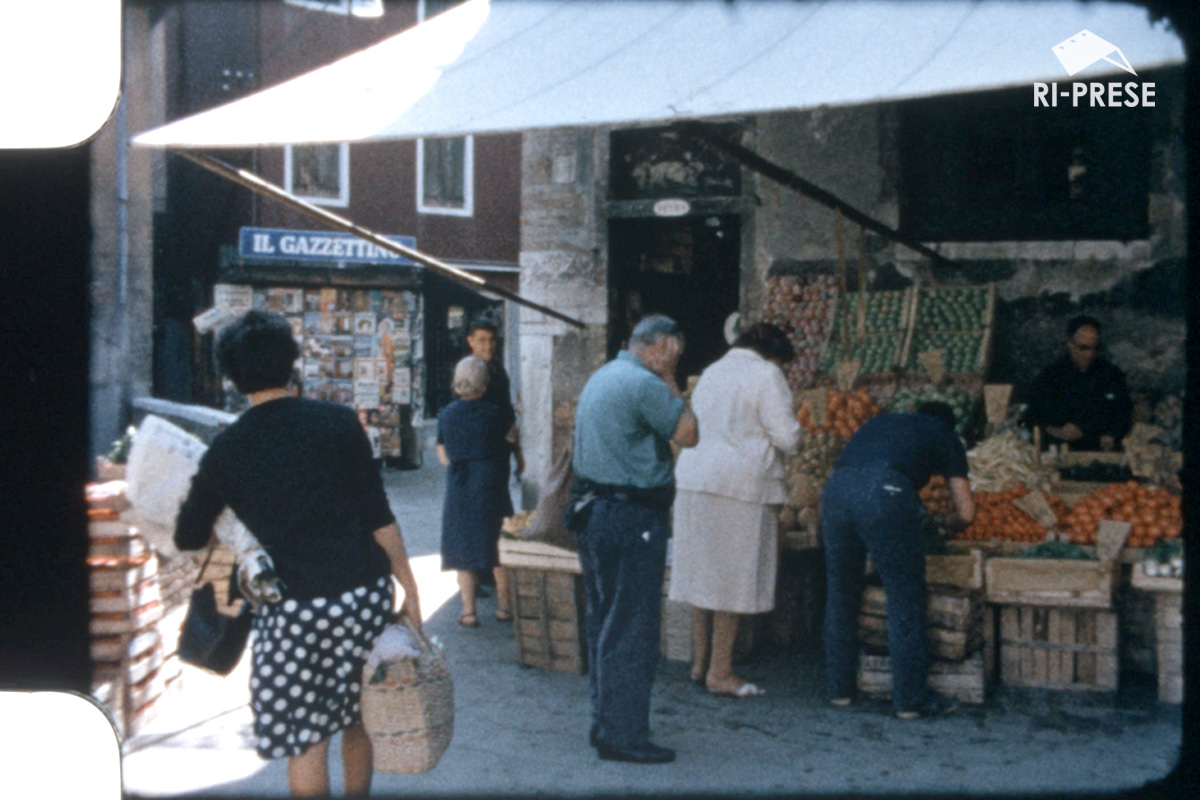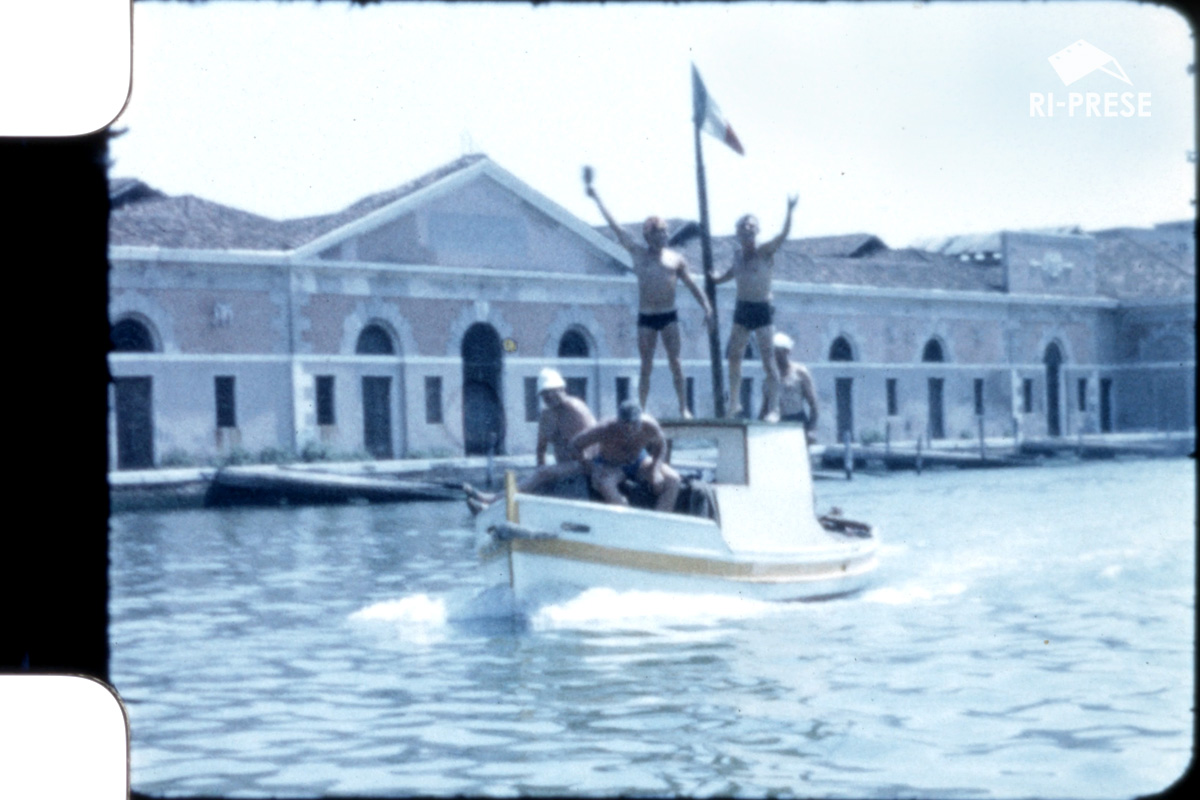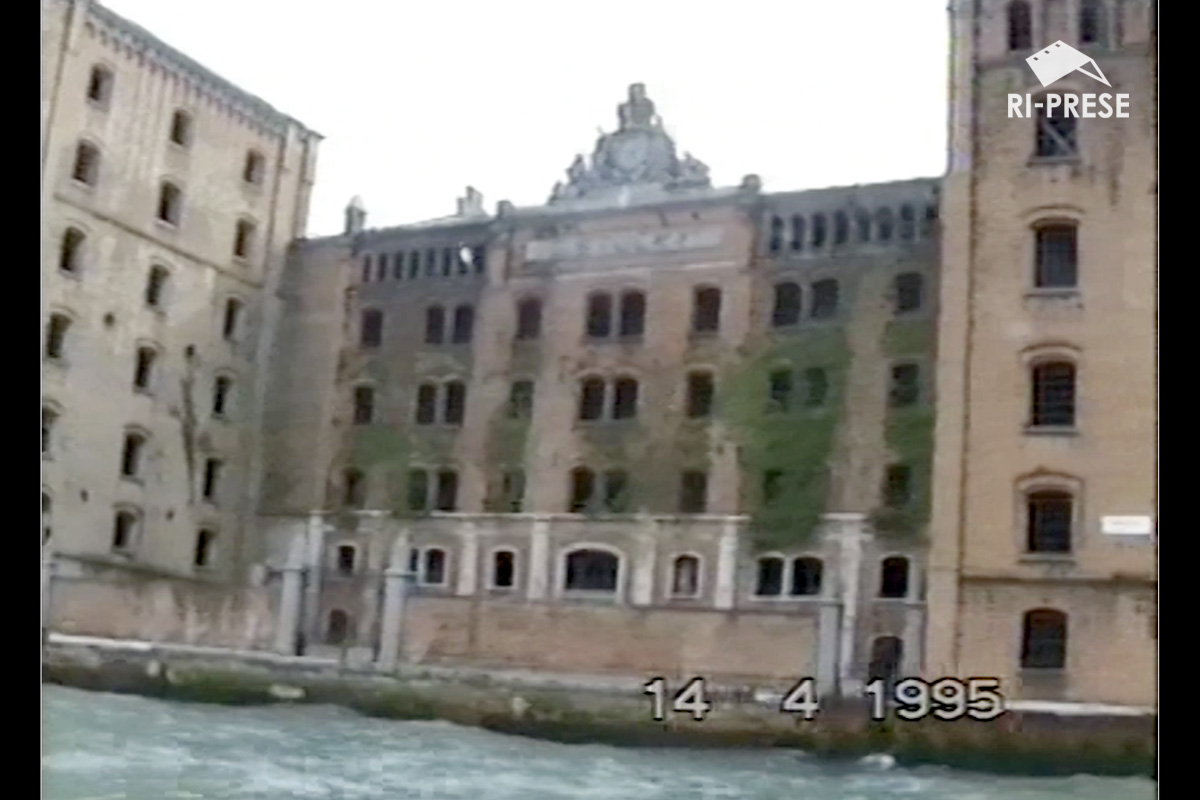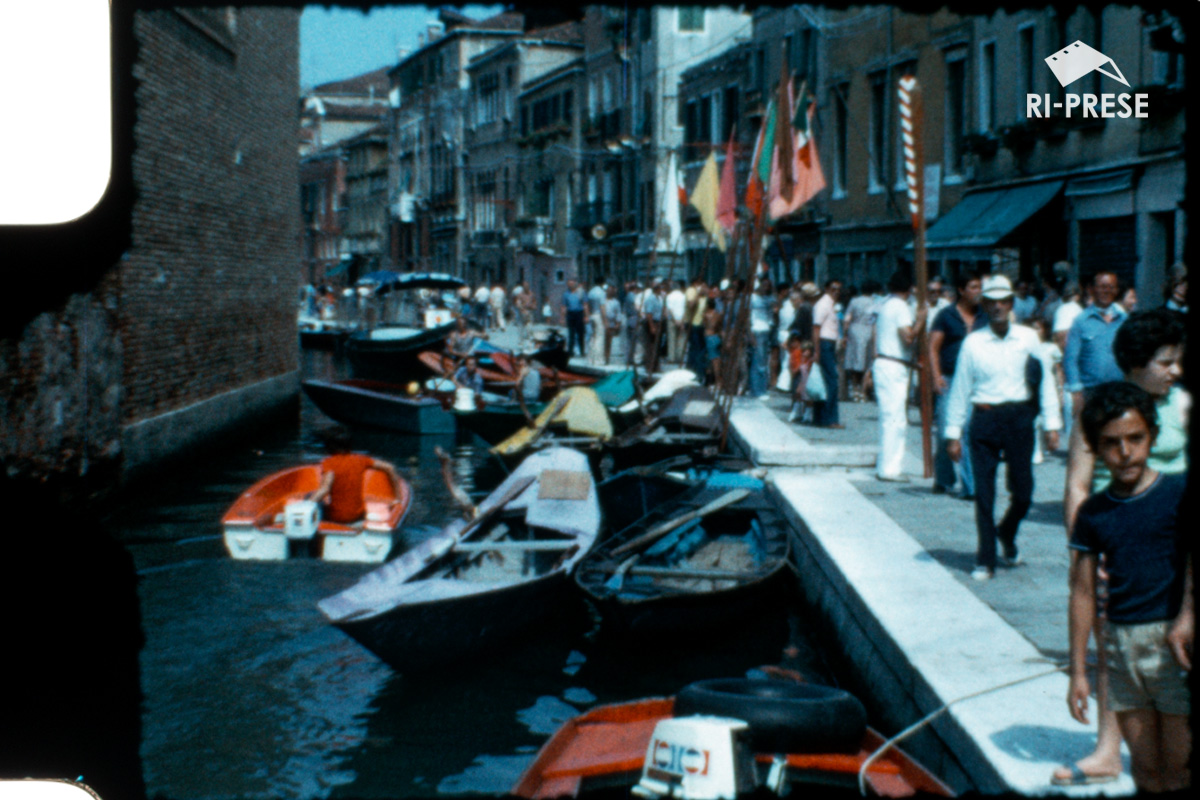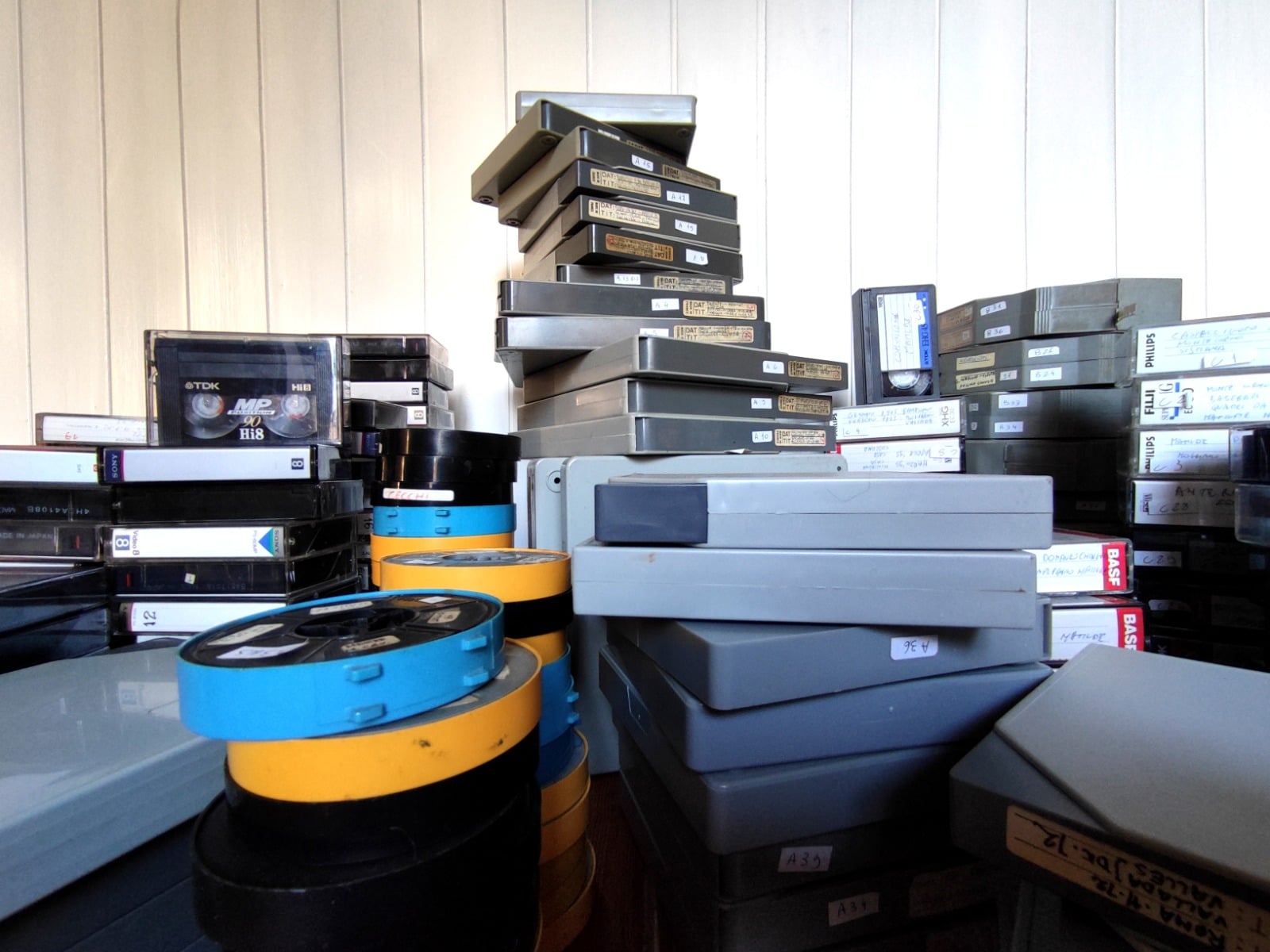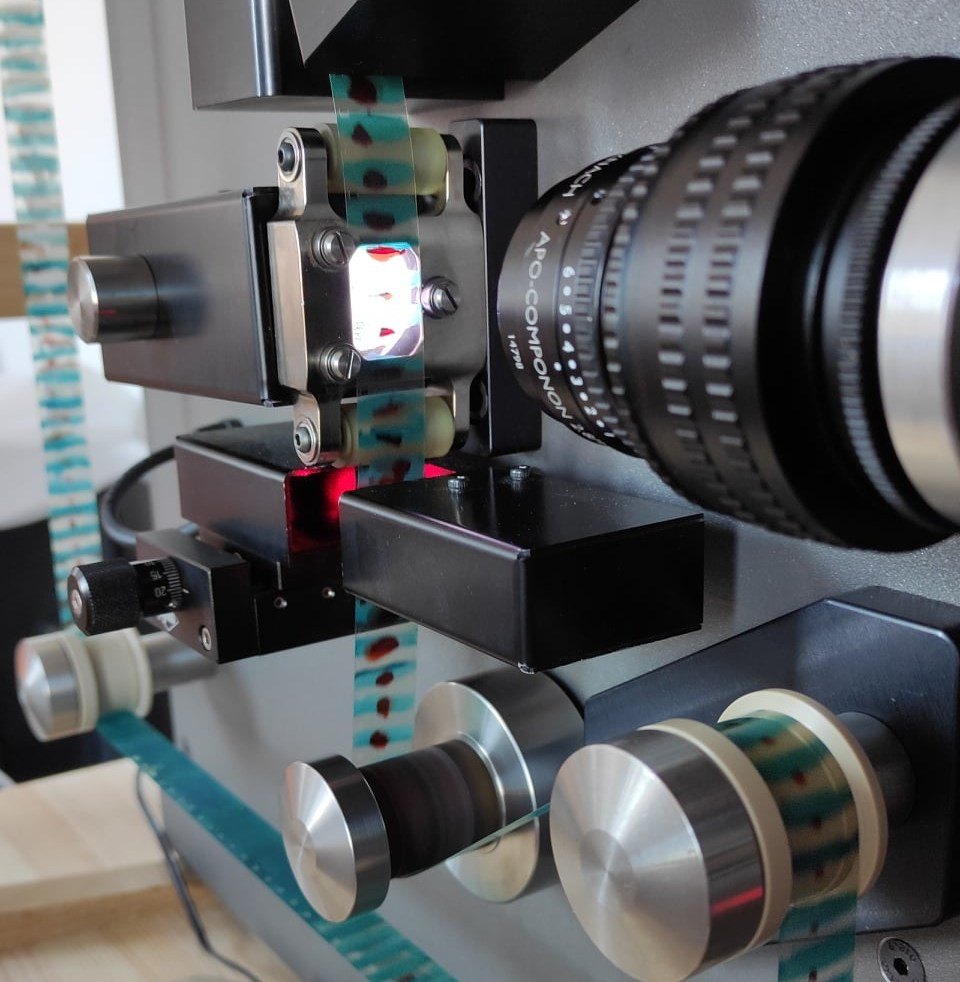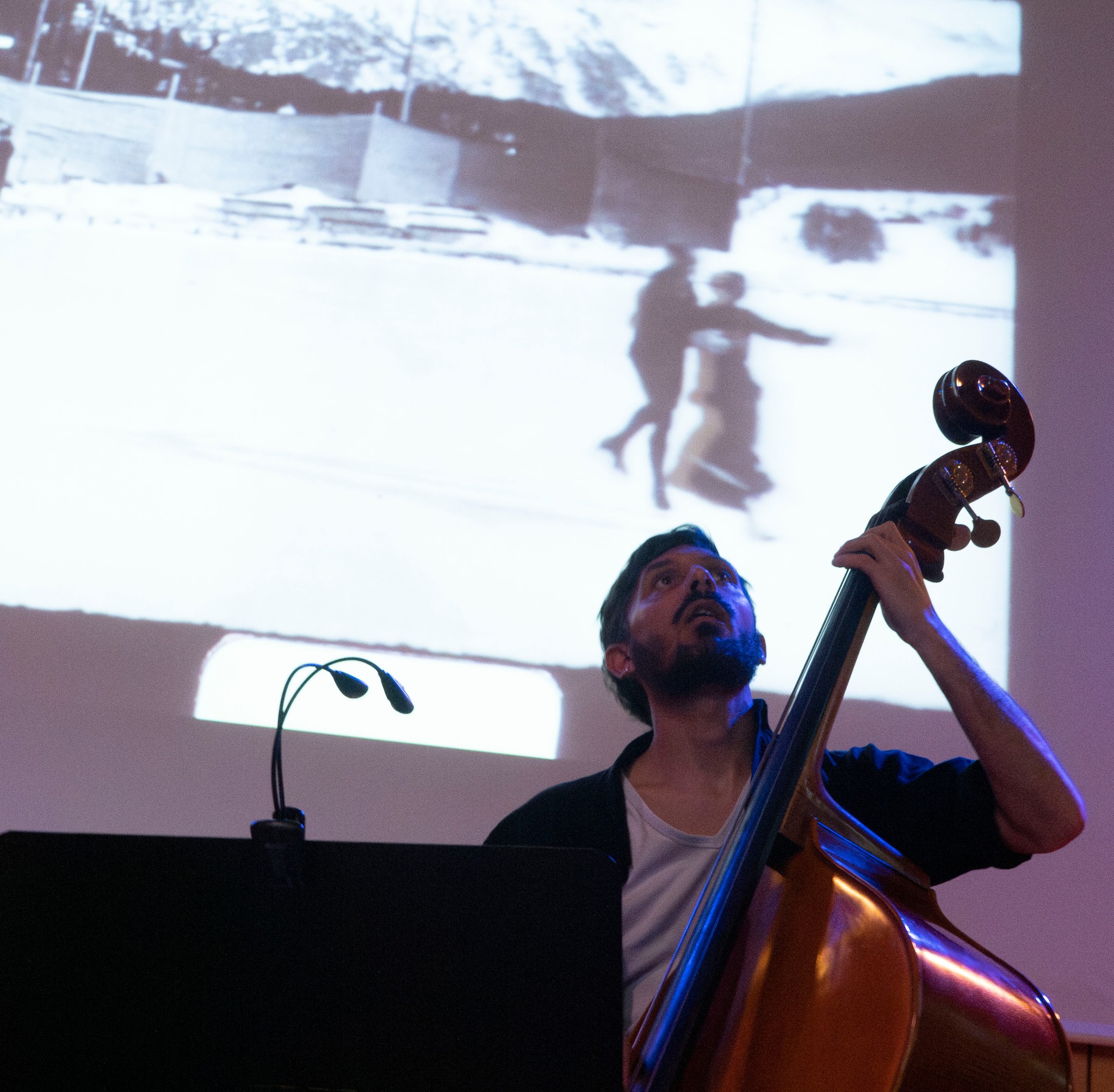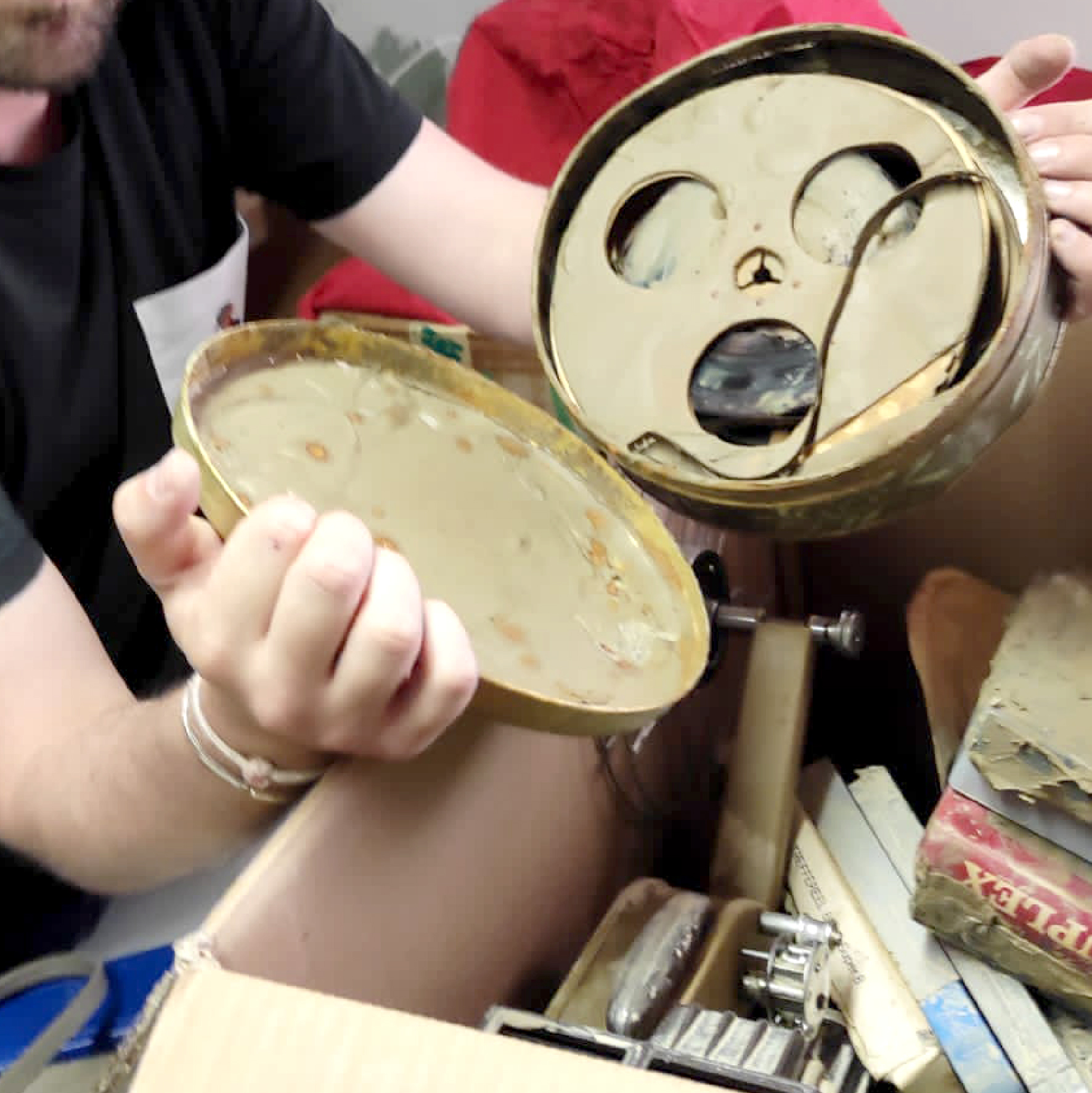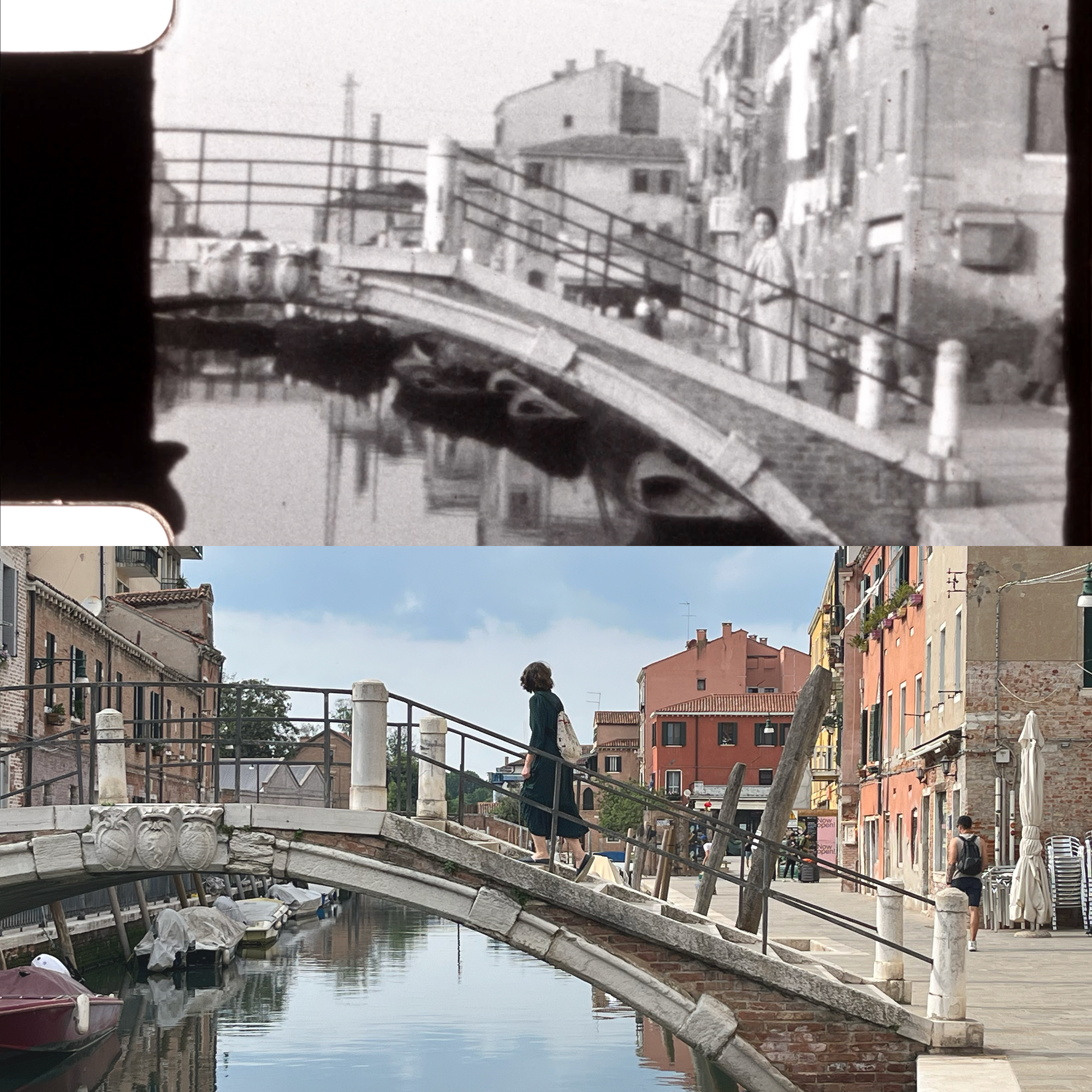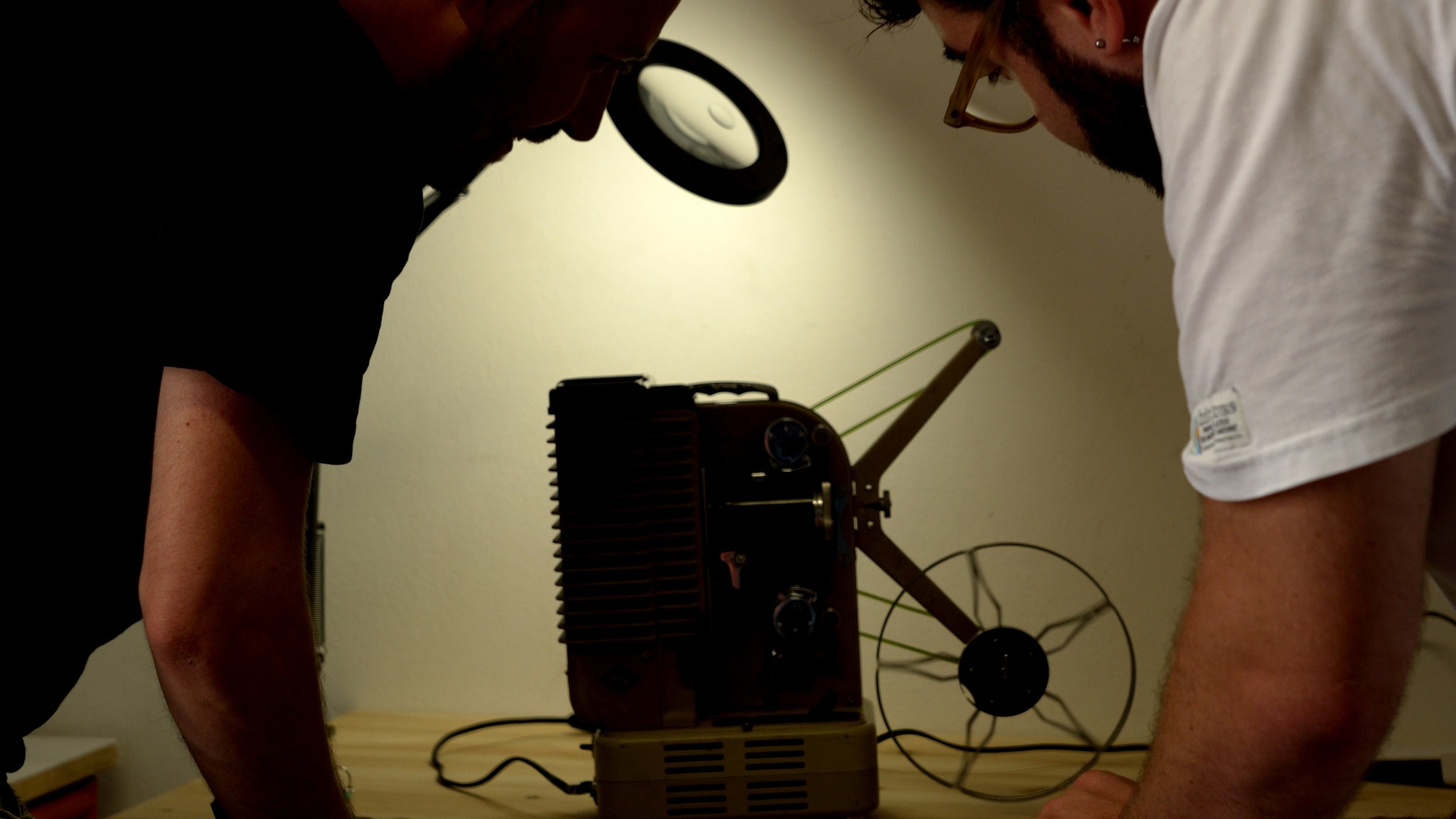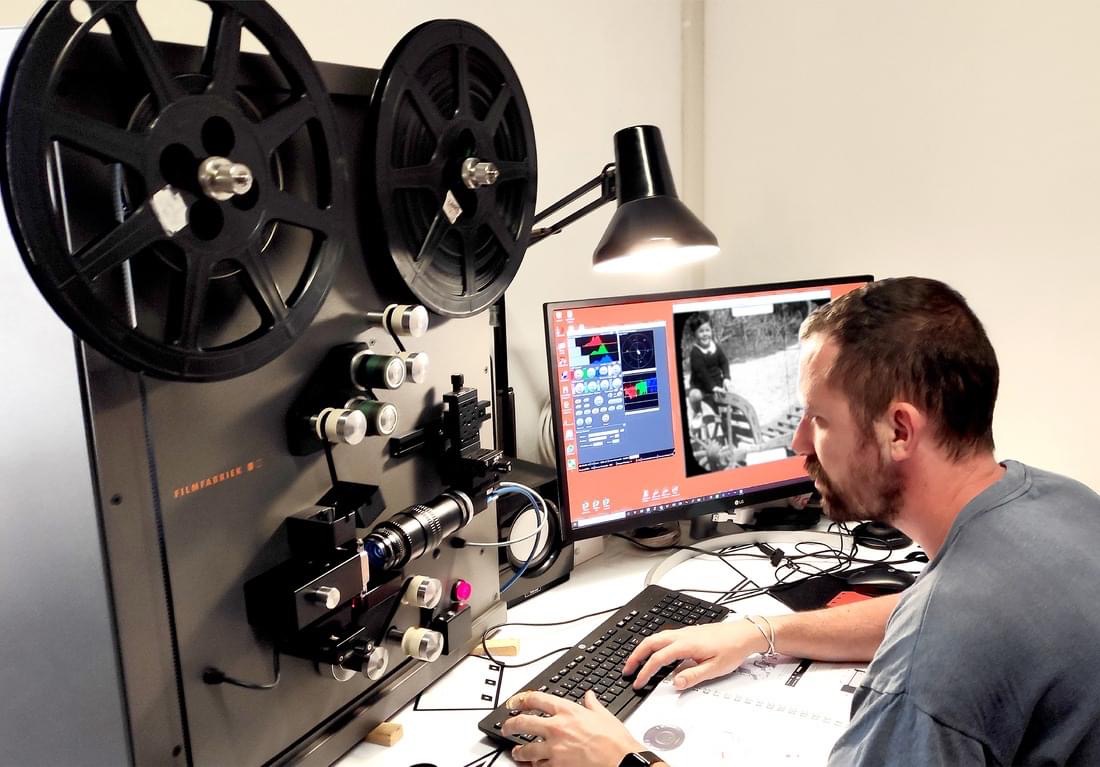Regaining a sense of belonging
RI-PRESE - Venetian home movies archive
RI-PRESE - Preserving Venice's heritage through a territorial and participatory home movies archive
Based in the historic centre of Venice, RI-PRESE is a home movies archive, whose missions are to safeguard, preserve, enhance and share the private memories collected in amateur films shot by Venetians from the 1920s to the present. Images of families, journeys, traditions, community events contained in small gauge films, such as super8, or videotapes like the VHS: supports at high risk of deterioration.
These are precious memories, essential pieces of the heritage of the city of Venice.
These are precious memories, essential pieces of the heritage of the city of Venice.
Italy
Local
Venice
Mainly urban
It refers to other types of transformations (soft investment)
Yes
2020-10-06
No
No
No
As a representative of an organisation, in partnership with other organisations
RI-PRESE aims to safeguard, preserve, and share the private audiovisual memories of Venice through the digitization and archival of amateur films from the 1920s to the present. As a Venetian archive of home movies, the project addresses depopulation and the loss of collective memory, preserving these cultural artifacts, reconnecting the community to its historical identity and fostering a collective sense of belonging.
RI-PRESE involves various groups in its mission. Venetian citizens contribute their home movies to ensure their stories remain part of the city's heritage. Youth and students engage through workshops and creative reuse of archival materials, fostering awareness of audiovisual preservation. Scholars, artists, and visitors benefit from the archive, gaining valuable insight into Venice’s evolving cultural landscape.
The project focuses on cultural preservation by digitizing fragile and obsolete film formats at risk of deterioration. It strengthens community bonds by encouraging residents to share their private memories, fostering a collective identity. RI-PRESE also integrates education and artistic practices, inspiring creative reuse of archival material in exhibitions, films, and school programs. Lastly, it bridges generations, using shared narratives to connect younger and older Venetians, ensuring cultural knowledge is passed down and remains alive.
RI-PRESE has already achieved significant results. Over 2,500 films and videotapes have been digitized, involving more than 100 families, with the archive continuously growing. This effort has led to the creation of a digital collection, offering unique perspectives on Venice’s history through its residents’ eyes. Public screenings and cultural events have strengthened community connections, while educational programs have introduced hundreds of students to the value of preserving intangible heritage, inspiring the next generation to engage in cultural conservation.
RI-PRESE involves various groups in its mission. Venetian citizens contribute their home movies to ensure their stories remain part of the city's heritage. Youth and students engage through workshops and creative reuse of archival materials, fostering awareness of audiovisual preservation. Scholars, artists, and visitors benefit from the archive, gaining valuable insight into Venice’s evolving cultural landscape.
The project focuses on cultural preservation by digitizing fragile and obsolete film formats at risk of deterioration. It strengthens community bonds by encouraging residents to share their private memories, fostering a collective identity. RI-PRESE also integrates education and artistic practices, inspiring creative reuse of archival material in exhibitions, films, and school programs. Lastly, it bridges generations, using shared narratives to connect younger and older Venetians, ensuring cultural knowledge is passed down and remains alive.
RI-PRESE has already achieved significant results. Over 2,500 films and videotapes have been digitized, involving more than 100 families, with the archive continuously growing. This effort has led to the creation of a digital collection, offering unique perspectives on Venice’s history through its residents’ eyes. Public screenings and cultural events have strengthened community connections, while educational programs have introduced hundreds of students to the value of preserving intangible heritage, inspiring the next generation to engage in cultural conservation.
Memory
Community
Heritage
Preservation
Innovation
RI-PRESE project is deeply rooted in sustainability, preserving cultural heritage while addressing environmental and economic challenges. In a city like Venice, where climate change and rising tides threaten archives, the project rescues fragile audiovisual materials at risk of deterioration. By digitizing these films, it prevents the loss of invaluable artifacts and guarantees access.
Furthermore, RI-PRESE pursues economic sustainability through circularity, giving priority to exchange over financial transactions. The project relies on shared resources and mutual support, offering free digitization in exchange for cultural participation. This fosters a community-driven dynamic where knowledge and materials circulate, creating value.
RI-PRESE also promotes a "visual ecology" by reusing archival footage for creative and educational purposes. The preservation and reinterpretation of existing images contribute to sustainable cultural practices, extending the life cycle of visual media and reducing the need for new production. Through screenings, collaborations, educational programs, these materials are reintegrated into contemporary discourse, enhancing cultural narratives while minimizing environmental impact.
The project’s commitment to sustainability is reflected in its efforts to raise awareness of climate change’s impact on cultural heritage. Initiatives such as “Memories of the Mud Mission” (2023), which focused on restoring films damaged by floods in the Emilia Romagna region, highlight audiovisual archives' vulnerability in flood-prone regions, promoting collective responsibility for environmental preservation.
Through sustainable cultural preservation, RI-PRESE integrates digitization with community engagement. It demonstrates how localized actions, such as rescuing personal memories, address global challenges like climate change. Its focus on education and awareness equips future generations to maintain sustainable practices in heritage management.
Furthermore, RI-PRESE pursues economic sustainability through circularity, giving priority to exchange over financial transactions. The project relies on shared resources and mutual support, offering free digitization in exchange for cultural participation. This fosters a community-driven dynamic where knowledge and materials circulate, creating value.
RI-PRESE also promotes a "visual ecology" by reusing archival footage for creative and educational purposes. The preservation and reinterpretation of existing images contribute to sustainable cultural practices, extending the life cycle of visual media and reducing the need for new production. Through screenings, collaborations, educational programs, these materials are reintegrated into contemporary discourse, enhancing cultural narratives while minimizing environmental impact.
The project’s commitment to sustainability is reflected in its efforts to raise awareness of climate change’s impact on cultural heritage. Initiatives such as “Memories of the Mud Mission” (2023), which focused on restoring films damaged by floods in the Emilia Romagna region, highlight audiovisual archives' vulnerability in flood-prone regions, promoting collective responsibility for environmental preservation.
Through sustainable cultural preservation, RI-PRESE integrates digitization with community engagement. It demonstrates how localized actions, such as rescuing personal memories, address global challenges like climate change. Its focus on education and awareness equips future generations to maintain sustainable practices in heritage management.
RI-PRESE enhances aesthetics and the quality of experience by transforming private amateur films into cultural artifacts, allowing people to connect with Venice’s heritage. The project celebrates everyday beauty by highlighting the aesthetic and emotional value of these films, which capture authentic moments such as family gatherings, traditions, and community events. These visuals convey a strong sense of identity, reflecting daily life in Venice and breathing new life into the city’s collective memory.
By curating and sharing these narratives, RI-PRESE also contributes to a deeper cultural understanding of Venice’s intangible heritage, bridging the gap between historical and modern perspectives. Public screenings, exhibitions, and installations turn archival footage into vibrant cultural events, fostering a shared sense of belonging. Through this approach, the project not only preserves historical memory but also makes it accessible to a wide audience, encouraging participation and engagement.
Additionally, RI-PRESE fosters creativity and innovation by inspiring students, artists, and filmmakers to reinterpret historical materials, creating new narratives that remain deeply rooted in the past while looking forward to the future. This process of “artistic reuse” results in contemporary works, such as short films and installations, that offer a fresh, renewed perspective on Venice’s history, yet remain deeply connected to its cultural identity.
Through community events, artistic collaborations, and educational initiatives, RI-PRESE has had a significant impact in uniting Venetians, enabling them to rediscover their shared history. These activities have promoted inclusivity and accessibility, ensuring that everyone can participate, learn, and appreciate the historical and cultural value of amateur films. Moreover, workshops and lectures have engaged younger generations, fostering a deeper connection to their heritage through modern interpretations of the past.
By curating and sharing these narratives, RI-PRESE also contributes to a deeper cultural understanding of Venice’s intangible heritage, bridging the gap between historical and modern perspectives. Public screenings, exhibitions, and installations turn archival footage into vibrant cultural events, fostering a shared sense of belonging. Through this approach, the project not only preserves historical memory but also makes it accessible to a wide audience, encouraging participation and engagement.
Additionally, RI-PRESE fosters creativity and innovation by inspiring students, artists, and filmmakers to reinterpret historical materials, creating new narratives that remain deeply rooted in the past while looking forward to the future. This process of “artistic reuse” results in contemporary works, such as short films and installations, that offer a fresh, renewed perspective on Venice’s history, yet remain deeply connected to its cultural identity.
Through community events, artistic collaborations, and educational initiatives, RI-PRESE has had a significant impact in uniting Venetians, enabling them to rediscover their shared history. These activities have promoted inclusivity and accessibility, ensuring that everyone can participate, learn, and appreciate the historical and cultural value of amateur films. Moreover, workshops and lectures have engaged younger generations, fostering a deeper connection to their heritage through modern interpretations of the past.
RI-PRESE places a strong emphasis on inclusion by ensuring that its services are accessible to all, fostering intergenerational dialogue, and embracing diverse contributions from society to preserve Venice’s cultural heritage. By providing free digitization services to Venetian citizens, the project removes financial barriers, enabling individuals from all economic backgrounds to preserve and share their personal histories. The archive is also digitally accessible, allowing a wide audience to engage with the project.
A key aspect of RI-PRESE is its focus on intergenerational connections. The project brings together older contributors, who share their home movies, with younger participants who engage in educational workshops. This exchange helps bridge generational gaps, fostering mutual understanding and enriching the collective memory of the community. The participatory governance model encourages input and collaboration with local institutions, schools, and universities, empowering communities to take an active role in preserving their cultural heritage.
These objectives have been met through concrete actions: over 2500 films have been digitized, benefiting more than 100 families, enabling them to preserve and share their memories. Educational workshops and outreach programs have engaged students, teaching them the importance of cultural heritage and involving them in creative projects. Public screenings and events have helped reconnect Venetians with their shared history, strengthening social cohesion. Collaborations with local and international organizations have expanded the inclusivity and reach of the project, furthering its impact.
RI-PRESE offers a valuable example of inclusive cultural preservation. By making heritage accessible to all and promoting participation across generations and social groups, it strengthens Venice’s social fabric. This approach demonstrates how inclusive practices can enhance the management and preservation of cultural heritage.
A key aspect of RI-PRESE is its focus on intergenerational connections. The project brings together older contributors, who share their home movies, with younger participants who engage in educational workshops. This exchange helps bridge generational gaps, fostering mutual understanding and enriching the collective memory of the community. The participatory governance model encourages input and collaboration with local institutions, schools, and universities, empowering communities to take an active role in preserving their cultural heritage.
These objectives have been met through concrete actions: over 2500 films have been digitized, benefiting more than 100 families, enabling them to preserve and share their memories. Educational workshops and outreach programs have engaged students, teaching them the importance of cultural heritage and involving them in creative projects. Public screenings and events have helped reconnect Venetians with their shared history, strengthening social cohesion. Collaborations with local and international organizations have expanded the inclusivity and reach of the project, furthering its impact.
RI-PRESE offers a valuable example of inclusive cultural preservation. By making heritage accessible to all and promoting participation across generations and social groups, it strengthens Venice’s social fabric. This approach demonstrates how inclusive practices can enhance the management and preservation of cultural heritage.
RI-PRESE places community engagement at its core, involving citizens and civil society in meaningful ways that have had a significant impact on the project. In Venice, a city facing depopulation and the risk of losing its cultural memory, projects like RI-PRESE are vital for preserving both tangible and intangible heritage.
Venetian citizens play a crucial role as contributors of cultural heritage by donating their private amateur films for digitization. This not only preserves personal histories but also enriches the collective archive, fostering a sense of ownership and pride in the city’s cultural memory. Citizens also participate in educational workshops, learning about the value of audiovisual heritage. These workshops encourage intergenerational dialogue and inspire creative reuse of materials. Public screenings, exhibitions, and events invite the broader community to engage with Venice’s heritage, providing platforms for interaction and storytelling.
Citizens are involved at various levels, from co-creators to decision-makers. By sharing their histories, they help shape the project and provide feedback, ensuring its relevance and inclusivity. Collaborations with schools, universities, and cultural associations expand the project’s reach. Citizens influence its development, ensuring it aligns with community needs.
This involvement has strengthened community bonds by reconnecting individuals with their heritage and one another, fostering belonging. Public events and activities have increased awareness of intangible heritage preservation. Artistic and educational initiatives inspired by the archive have stimulated cultural production and creativity within the community.
In the context of Venice’s struggles with depopulation and memory loss, RI-PRESE helps maintain the city’s cultural identity. It exemplifies how active citizen involvement can transform cultural preservation into a dynamic, community-centered initiative.
Venetian citizens play a crucial role as contributors of cultural heritage by donating their private amateur films for digitization. This not only preserves personal histories but also enriches the collective archive, fostering a sense of ownership and pride in the city’s cultural memory. Citizens also participate in educational workshops, learning about the value of audiovisual heritage. These workshops encourage intergenerational dialogue and inspire creative reuse of materials. Public screenings, exhibitions, and events invite the broader community to engage with Venice’s heritage, providing platforms for interaction and storytelling.
Citizens are involved at various levels, from co-creators to decision-makers. By sharing their histories, they help shape the project and provide feedback, ensuring its relevance and inclusivity. Collaborations with schools, universities, and cultural associations expand the project’s reach. Citizens influence its development, ensuring it aligns with community needs.
This involvement has strengthened community bonds by reconnecting individuals with their heritage and one another, fostering belonging. Public events and activities have increased awareness of intangible heritage preservation. Artistic and educational initiatives inspired by the archive have stimulated cultural production and creativity within the community.
In the context of Venice’s struggles with depopulation and memory loss, RI-PRESE helps maintain the city’s cultural identity. It exemplifies how active citizen involvement can transform cultural preservation into a dynamic, community-centered initiative.
RI-PRESE exemplifies multi-level stakeholder engagement, connecting various actors to design and implement the project effectively.
At the local and regional levels, citizens played a vital role by contributing their private film archives, ensuring the cultural relevance of the project. They also participated in screenings, workshops, and public events. Local community organizations, including schools, universities, and cultural associations, collaborated to expand educational outreach and raise awareness about the importance of audiovisual heritage.
On the national and European levels, RI-PRESE participated in significant initiatives, such as the Home Movies Days 2023 and 2024, funded by the Italian Ministry of Culture. That brought together speakers and audiences from across the globe.
The project is also part of a national network of archives and experts specializing in home movies, which has fostered valuable collaboration and knowledge-sharing.
These multi-level engagements have brought significant added value. At the local and regional levels, they strengthened community ties, fostered a sense of ownership, and improved resource-sharing for better preservation practices. On the national and European levels, participation in major events increased visibility, helping ensure the project’s scalability and sustainability while also expanding its international impact and fostering cross-border collaboration.
Through these collaborations, RI-PRESE has contributed to preserving Venice’s unique heritage, fostering innovation and strengthening cultural preservation efforts across multiple levels.
At the local and regional levels, citizens played a vital role by contributing their private film archives, ensuring the cultural relevance of the project. They also participated in screenings, workshops, and public events. Local community organizations, including schools, universities, and cultural associations, collaborated to expand educational outreach and raise awareness about the importance of audiovisual heritage.
On the national and European levels, RI-PRESE participated in significant initiatives, such as the Home Movies Days 2023 and 2024, funded by the Italian Ministry of Culture. That brought together speakers and audiences from across the globe.
The project is also part of a national network of archives and experts specializing in home movies, which has fostered valuable collaboration and knowledge-sharing.
These multi-level engagements have brought significant added value. At the local and regional levels, they strengthened community ties, fostered a sense of ownership, and improved resource-sharing for better preservation practices. On the national and European levels, participation in major events increased visibility, helping ensure the project’s scalability and sustainability while also expanding its international impact and fostering cross-border collaboration.
Through these collaborations, RI-PRESE has contributed to preserving Venice’s unique heritage, fostering innovation and strengthening cultural preservation efforts across multiple levels.
RI-PRESE integrates various disciplines, shaping its design into an innovative initiative. As a spin-off of the Iuav University of Venice, the project collaborates with the university’s courses in architecture, urban planning, arts, cinema, theater, fashion, and design. Professors, researchers, PhD students, and students have developed initiatives, educational projects, research activities, artistic endeavors, and theses in collaboration with the archive.
Archival science plays a key role, with experts guiding the digitization and preservation of fragile media for long-term sustainability. Film restoration and media studies help restore historical footage, emphasizing its cultural value. Collaboration with Iuav’s arts and creative industries courses enables artists to transform archival materials into films, exhibitions, and installations, connecting the past with contemporary culture.
The project organizes workshops to engage students in cultural preservation, fostering awareness. These initiatives bring together professors, researchers, and filmmakers to create relevant content. Sociology and community engagement are also key, studying how shared memories strengthen community identity and foster inclusion.
Environmental science addresses Venice’s climate risks, ensuring the preservation of archival materials and reinforcing the project’s commitment to sustainability.
This cross-disciplinary approach leads to innovation in digitization, creative reuse of content, and enhanced cultural relevance. It strengthens community ties, safeguards both physical and cultural heritage, and ensures its preservation for future generations.
Through this collaborative approach, RI-PRESE exemplifies the potential of university-led initiatives in creating inclusive and sustainable cultural preservation projects.
Archival science plays a key role, with experts guiding the digitization and preservation of fragile media for long-term sustainability. Film restoration and media studies help restore historical footage, emphasizing its cultural value. Collaboration with Iuav’s arts and creative industries courses enables artists to transform archival materials into films, exhibitions, and installations, connecting the past with contemporary culture.
The project organizes workshops to engage students in cultural preservation, fostering awareness. These initiatives bring together professors, researchers, and filmmakers to create relevant content. Sociology and community engagement are also key, studying how shared memories strengthen community identity and foster inclusion.
Environmental science addresses Venice’s climate risks, ensuring the preservation of archival materials and reinforcing the project’s commitment to sustainability.
This cross-disciplinary approach leads to innovation in digitization, creative reuse of content, and enhanced cultural relevance. It strengthens community ties, safeguards both physical and cultural heritage, and ensures its preservation for future generations.
Through this collaborative approach, RI-PRESE exemplifies the potential of university-led initiatives in creating inclusive and sustainable cultural preservation projects.
RI-PRESE offers a fresh approach to cultural heritage preservation, focusing on innovative methods and participatory strategies.
A key innovation is its citizen-centered archiving model. Unlike conventional archives, RI-PRESE actively involves citizens as co-creators, inviting them to contribute their private amateur films. This ensures the archive reflects authentic, diverse perspectives of Venetian life, capturing personal memories often overlooked by traditional methods.
The project also stands out for its interdisciplinary collaboration. By integrating archival science, media studies, art, sociology, and environmental science, RI-PRESE fosters advanced digitization techniques and creative reuse of materials, resulting in new cultural outputs.
While many projects focus on physical monuments, RI-PRESE emphasizes intangible heritage, capturing everyday lives and preserving cultural nuances often missed by mainstream efforts. This focus on personal and community memories is a unique approach to cultural preservation.
The innovative reuse of materials also plays a central role. Preserved footage is transformed into exhibitions, short films, and educational tools, making historical content relevant and accessible to modern audiences.
Environmental science is integrated into the project by addressing Venice’s climate risks. By rescuing materials threatened by climate change, RI-PRESE combines cultural preservation with environmental responsibility.
Compared to mainstream projects, RI-PRESE breaks new ground. Its focus on citizen participation, intangible heritage, and interdisciplinary solutions sets it apart, offering a dynamic and inclusive approach that combines sustainability and innovation. This model can inspire similar initiatives elsewhere, showing how cultural preservation can evolve to meet contemporary challenges.
A key innovation is its citizen-centered archiving model. Unlike conventional archives, RI-PRESE actively involves citizens as co-creators, inviting them to contribute their private amateur films. This ensures the archive reflects authentic, diverse perspectives of Venetian life, capturing personal memories often overlooked by traditional methods.
The project also stands out for its interdisciplinary collaboration. By integrating archival science, media studies, art, sociology, and environmental science, RI-PRESE fosters advanced digitization techniques and creative reuse of materials, resulting in new cultural outputs.
While many projects focus on physical monuments, RI-PRESE emphasizes intangible heritage, capturing everyday lives and preserving cultural nuances often missed by mainstream efforts. This focus on personal and community memories is a unique approach to cultural preservation.
The innovative reuse of materials also plays a central role. Preserved footage is transformed into exhibitions, short films, and educational tools, making historical content relevant and accessible to modern audiences.
Environmental science is integrated into the project by addressing Venice’s climate risks. By rescuing materials threatened by climate change, RI-PRESE combines cultural preservation with environmental responsibility.
Compared to mainstream projects, RI-PRESE breaks new ground. Its focus on citizen participation, intangible heritage, and interdisciplinary solutions sets it apart, offering a dynamic and inclusive approach that combines sustainability and innovation. This model can inspire similar initiatives elsewhere, showing how cultural preservation can evolve to meet contemporary challenges.
RI-PRESE employs a participatory and interdisciplinary methodology to effectively preserve Venice’s intangible cultural heritage. Central to the project is its citizen-centered preservation approach. Citizens contribute private amateur films, ensuring the archive reflects authentic, diverse perspectives of Venetian life. Free digitization services make preservation accessible to all, allowing individuals to safeguard fragile media while enriching the collective archive.
The methodology also integrates interdisciplinary collaboration, bringing together experts from archival science, media studies, art, sociology, and environmental science to address preservation challenges holistically. This leads to the development of innovative digitization techniques, creative reuse of archival materials, and strategies for climate-resilient preservation.
The project emphasizes sustainability, focusing on materials threatened by Venice’s environmental challenges. By rescuing at-risk content from high tides and humidity, RI-PRESE ensures long-term preservation, integrating climate resilience into its methodology.
Community engagement and education are key to the approach. Educational workshops and public events foster intergenerational dialogue and raise awareness about cultural heritage. Public screenings and exhibitions transform archival materials into shared cultural experiences, reconnecting the community with its history.
The creative reuse of materials further enhances the project as preserved content is repurposed into exhibitions, short films, and educational tools, making historical footage relevant for modern audiences.
RI-PRESE’s methodology preserves fragile heritage and encourages communities to engage with their cultural memory. By integrating participatory practices, interdisciplinary expertise, and sustainable methods, the project offers a valuable example for inclusive and innovative cultural preservation.
The methodology also integrates interdisciplinary collaboration, bringing together experts from archival science, media studies, art, sociology, and environmental science to address preservation challenges holistically. This leads to the development of innovative digitization techniques, creative reuse of archival materials, and strategies for climate-resilient preservation.
The project emphasizes sustainability, focusing on materials threatened by Venice’s environmental challenges. By rescuing at-risk content from high tides and humidity, RI-PRESE ensures long-term preservation, integrating climate resilience into its methodology.
Community engagement and education are key to the approach. Educational workshops and public events foster intergenerational dialogue and raise awareness about cultural heritage. Public screenings and exhibitions transform archival materials into shared cultural experiences, reconnecting the community with its history.
The creative reuse of materials further enhances the project as preserved content is repurposed into exhibitions, short films, and educational tools, making historical footage relevant for modern audiences.
RI-PRESE’s methodology preserves fragile heritage and encourages communities to engage with their cultural memory. By integrating participatory practices, interdisciplinary expertise, and sustainable methods, the project offers a valuable example for inclusive and innovative cultural preservation.
RI-PRESE has high potential for transferability and replicability, offering innovative elements that can be applied to diverse contexts, groups, and locations.
A key transferable element is the participatory methodology, where citizens contribute private amateur films, ensuring the archive reflects authentic, diverse perspectives. This model can be replicated in other communities, building collective memory archives that empower individuals to preserve their heritage.
The free digitization model, supported by local collaborations, offers an inclusive and scalable way to preserve fragile media, making it adaptable across regions. Interdisciplinary collaboration integrates archival science, media studies, art, sociology, and environmental science, creating a flexible framework for cultural preservation challenges.
RI-PRESE also emphasizes intangible heritage by capturing personal memories and everyday life, offering a model that can safeguard cultural nuances overlooked by traditional practices. The creative reuse of materials transforms archival content into exhibitions, short films, and educational tools, making history relevant for modern audiences.
Educational and community engagement activities, such as workshops and public events, foster intergenerational dialogue and active participation, making these elements replicable in various settings.
Importantly, family film archives are a recent concept, and in many regions across Europe and the world, they do not yet exist. This gives RI-PRESE a high potential for replication and the transfer of expertise to new contexts.
The project’s approach can be applied in rural areas to document disappearing traditions, in urban communities to highlight immigrant narratives, or globally to inspire cross-cultural exchanges.
RI-PRESE demonstrates how participatory, interdisciplinary approaches can be adapted to preserve intangible heritage, offering a model that is both transferable and replicable.
A key transferable element is the participatory methodology, where citizens contribute private amateur films, ensuring the archive reflects authentic, diverse perspectives. This model can be replicated in other communities, building collective memory archives that empower individuals to preserve their heritage.
The free digitization model, supported by local collaborations, offers an inclusive and scalable way to preserve fragile media, making it adaptable across regions. Interdisciplinary collaboration integrates archival science, media studies, art, sociology, and environmental science, creating a flexible framework for cultural preservation challenges.
RI-PRESE also emphasizes intangible heritage by capturing personal memories and everyday life, offering a model that can safeguard cultural nuances overlooked by traditional practices. The creative reuse of materials transforms archival content into exhibitions, short films, and educational tools, making history relevant for modern audiences.
Educational and community engagement activities, such as workshops and public events, foster intergenerational dialogue and active participation, making these elements replicable in various settings.
Importantly, family film archives are a recent concept, and in many regions across Europe and the world, they do not yet exist. This gives RI-PRESE a high potential for replication and the transfer of expertise to new contexts.
The project’s approach can be applied in rural areas to document disappearing traditions, in urban communities to highlight immigrant narratives, or globally to inspire cross-cultural exchanges.
RI-PRESE demonstrates how participatory, interdisciplinary approaches can be adapted to preserve intangible heritage, offering a model that is both transferable and replicable.
RI-PRESE addresses critical global challenges through innovative local solutions, demonstrating how community-driven initiatives can have a broad impact.
1. Cultural Memory Loss
• Global Challenge: Globalization and urbanization erode intangible cultural heritage.
• Local Solution: RI-PRESE rescues private amateur films, preserving authentic memories of Venetian life. Involving citizens ensures the safeguarding of personal and collective histories.
2. Climate Change and Environmental Risks
• Global Challenge: Rising sea levels and extreme weather threaten cultural assets, especially in vulnerable cities like Venice.
• Local Solution: RI-PRESE digitizes fragile materials at risk, ensuring long-term preservation and raising awareness about the intersection of climate change and cultural heritage.
3. Social Fragmentation
• Global Challenge: Urbanization and socio-economic divides weaken community bonds and social cohesion.
• Local Solution: RI-PRESE fosters community engagement through participatory archiving, workshops, and public events, reconnecting individuals with shared histories.
4. Inaccessibility to Heritage Preservation
• Global Challenge: Traditional preservation excludes personal narratives, focusing on monumental heritage and limiting inclusivity.
• Local Solution: Free digitization services and a publicly accessible archive democratize heritage preservation, ensuring broader representation.
5. Limited Innovation in Heritage Management
• Global Challenge: Heritage management struggles to engage younger generations or adopt modern technologies.
• Local Solution: RI-PRESE integrates interdisciplinary collaboration, creative reuse of archival materials, and digital platforms, making heritage relevant for future generations.
By addressing global challenges with locally-driven solutions, RI-PRESE provides a replicable model for sustainable, inclusive, and innovative cultural preservation.
1. Cultural Memory Loss
• Global Challenge: Globalization and urbanization erode intangible cultural heritage.
• Local Solution: RI-PRESE rescues private amateur films, preserving authentic memories of Venetian life. Involving citizens ensures the safeguarding of personal and collective histories.
2. Climate Change and Environmental Risks
• Global Challenge: Rising sea levels and extreme weather threaten cultural assets, especially in vulnerable cities like Venice.
• Local Solution: RI-PRESE digitizes fragile materials at risk, ensuring long-term preservation and raising awareness about the intersection of climate change and cultural heritage.
3. Social Fragmentation
• Global Challenge: Urbanization and socio-economic divides weaken community bonds and social cohesion.
• Local Solution: RI-PRESE fosters community engagement through participatory archiving, workshops, and public events, reconnecting individuals with shared histories.
4. Inaccessibility to Heritage Preservation
• Global Challenge: Traditional preservation excludes personal narratives, focusing on monumental heritage and limiting inclusivity.
• Local Solution: Free digitization services and a publicly accessible archive democratize heritage preservation, ensuring broader representation.
5. Limited Innovation in Heritage Management
• Global Challenge: Heritage management struggles to engage younger generations or adopt modern technologies.
• Local Solution: RI-PRESE integrates interdisciplinary collaboration, creative reuse of archival materials, and digital platforms, making heritage relevant for future generations.
By addressing global challenges with locally-driven solutions, RI-PRESE provides a replicable model for sustainable, inclusive, and innovative cultural preservation.
RI-PRESE has achieved significant results and impacts aligned with the category “Regaining a Sense of Belonging,” benefiting both direct and indirect beneficiaries.
Results and Outcomes include the digitization of over 2,500 private amateur films, safeguarding unique perspectives on Venetian life. The archive is continually growing, with hundreds of new films added and dozens of families joining the project each year. This ensures the preservation of Venice’s intangible cultural heritage for future generations. The project fostered community engagement by involving over 100 families who contributed their personal collections, strengthening pride and ownership of local heritage. Public events, workshops, and screenings reached hundreds of participants, further uniting the community.
In terms of educational impact, RI-PRESE integrated heritage preservation into school curricula, allowing students to engage in creative projects and promoting intergenerational dialogue. Partnerships with universities provided valuable educational opportunities for researchers and students.
Direct beneficiaries include families who contributed films, ensuring their fragile materials are preserved and reclaiming personal histories. Local artists, educators, and students accessed archival materials for creative and educational projects. Indirect beneficiaries include the wider Venetian community, with access to a shared cultural archive fostering collective memory. International researchers also benefit from a unique resource for studying intangible heritage.
Demonstrated impacts include strengthened social cohesion, with intergenerational connections built through storytelling and participatory events. The project has raised cultural awareness, inspiring related initiatives in other contexts.
Finally, RI-PRESE has contributed to sustainability by establishing a replicable model for preserving heritage in environmentally vulnerable areas.
Results and Outcomes include the digitization of over 2,500 private amateur films, safeguarding unique perspectives on Venetian life. The archive is continually growing, with hundreds of new films added and dozens of families joining the project each year. This ensures the preservation of Venice’s intangible cultural heritage for future generations. The project fostered community engagement by involving over 100 families who contributed their personal collections, strengthening pride and ownership of local heritage. Public events, workshops, and screenings reached hundreds of participants, further uniting the community.
In terms of educational impact, RI-PRESE integrated heritage preservation into school curricula, allowing students to engage in creative projects and promoting intergenerational dialogue. Partnerships with universities provided valuable educational opportunities for researchers and students.
Direct beneficiaries include families who contributed films, ensuring their fragile materials are preserved and reclaiming personal histories. Local artists, educators, and students accessed archival materials for creative and educational projects. Indirect beneficiaries include the wider Venetian community, with access to a shared cultural archive fostering collective memory. International researchers also benefit from a unique resource for studying intangible heritage.
Demonstrated impacts include strengthened social cohesion, with intergenerational connections built through storytelling and participatory events. The project has raised cultural awareness, inspiring related initiatives in other contexts.
Finally, RI-PRESE has contributed to sustainability by establishing a replicable model for preserving heritage in environmentally vulnerable areas.

